
A few months ago I went on a business trip to Marseille. But it wasn’t just any business trip; it was a film shoot for one of my company’s clients, a large multinational corporation with a big office in Paris.
As a copywriter in an ad agency, I, along with three other creatives, had spent the previous months first writing dozens upon dozens of film scripts for a client that we had just won in a pitch — a Sisyphean process that entailed a ton of writing and rejections and re-writing and re-rejections and re-re-writing and re-re-rejections ad infinitum. Once they had approved the scripts for a series of commercials that were scheduled to go live in the summertime, we got in touch with a film production company and arranged the film production.
As our ad campaign was going to reach the entire country, they suggested that we shoot in Marseille. Why? Because when it comes to depicting France in its entirety, Marseille has everything covered. It has buildings that look like Paris, houses that look like Provence, beaches that look like the Mediterranean, countryside that looks like La France profonde, and people that look like all of France.
Unlike with Paris, which has a very distinctive look with its Haussmannian architecture, you can shoot in Marseille and get away with pretending to be anywhere in France.
At least, that’s what we were told. But how could we know for sure? Well, there was only one way to find out.
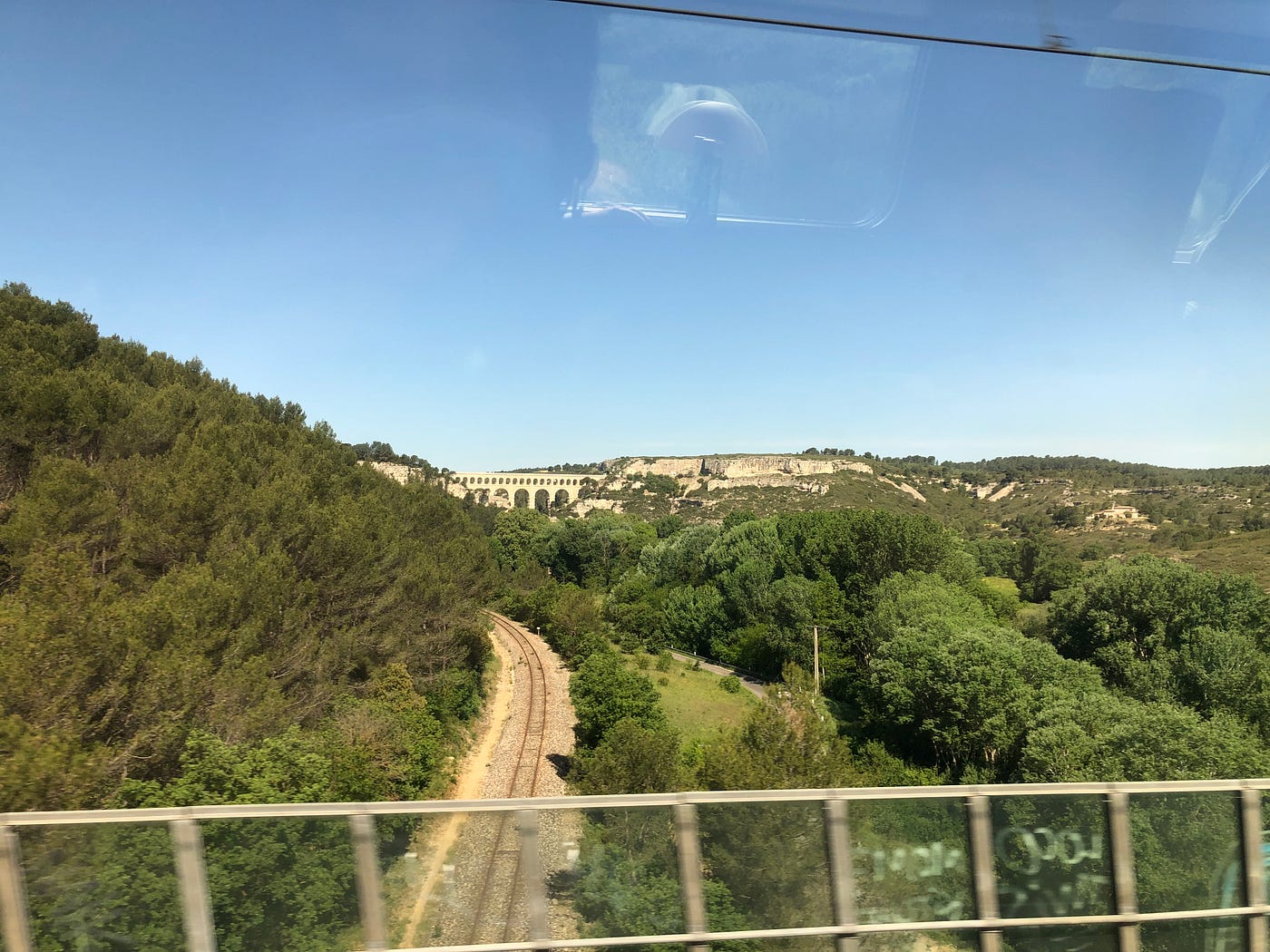
I caught the TGV, France’s very own bullet train, from the Gare de Lyon. As the train headed south, the roofs of the houses in the countryside went from blue to orange.
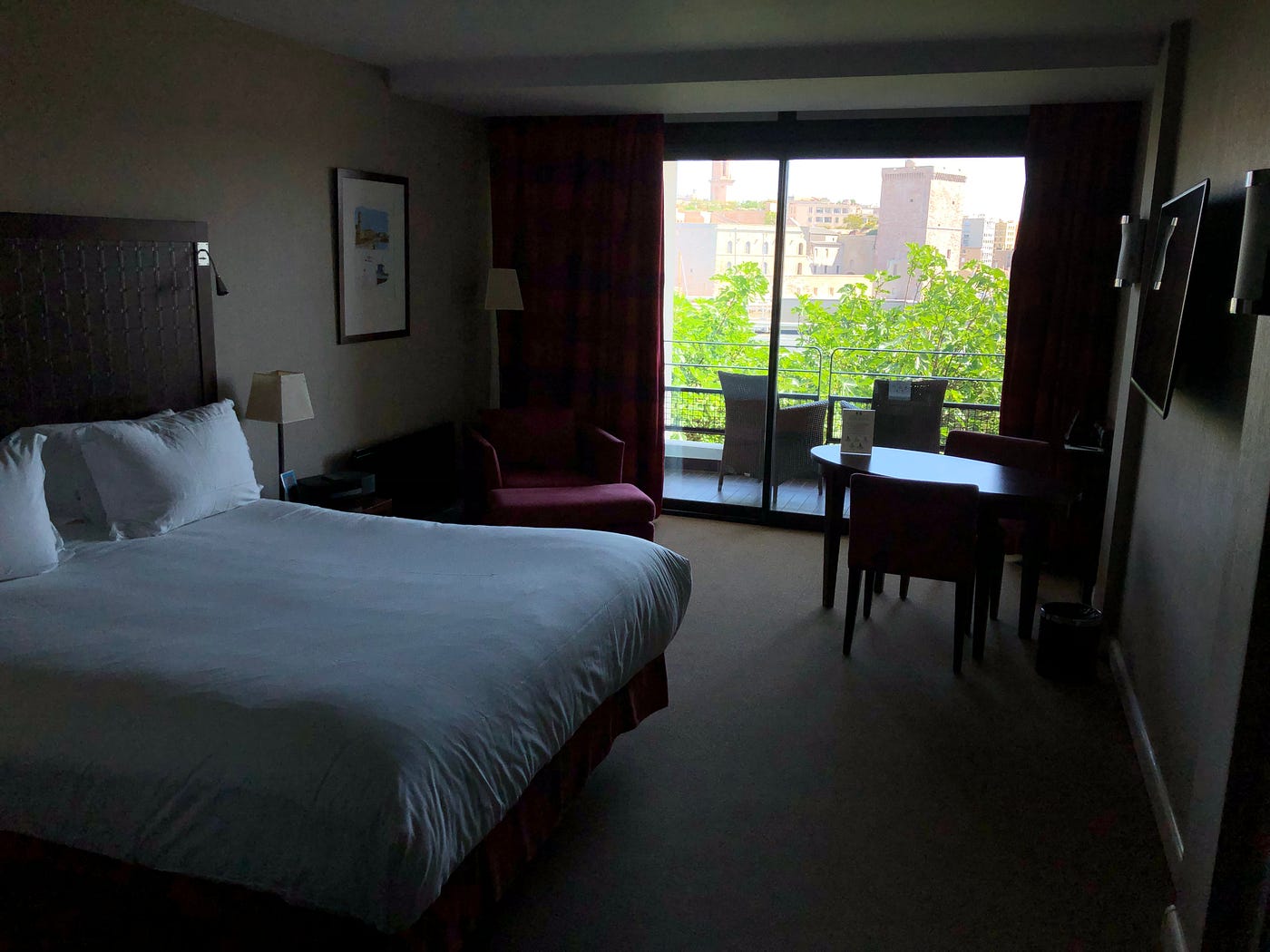
After a couple of hours, I arrived at in Marseille and made my way to my to the hotel. For some reason, the film company had put me up in a business suite inside quite a nice hotel. Not that I was complaining, of course.
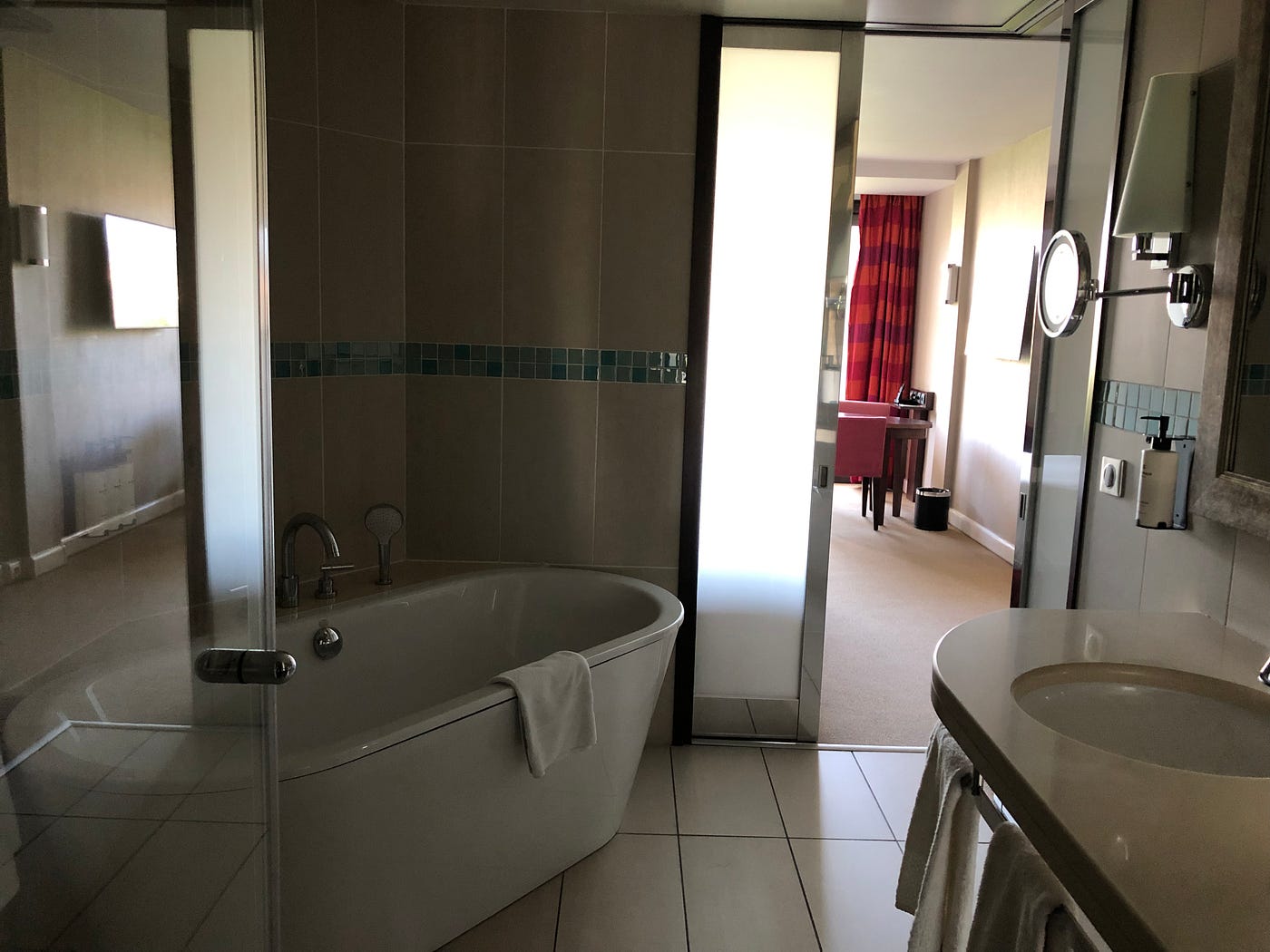
It would be no exaggeration to say that my hotel room was larger than my apartment in Paris. And that a few nights there cost more than my monthly rent. Suffice to say, I wouldn’t normally stay in such a place if I had to pay out of my own pocket.
I must admit I felt pretty sheepish upon arrival, especially since I had arrived by myself as the other creatives had already arrived a few days before me. I almost didn’t know what to say at reception, aside from the fact that I believed I was staying there. At first, the receptionist didn’t seem to think I was actually a client, but once my details came up on her screen, her demeanour changed from one of frosty sceptism to something a bit more friendly.
It was strange rubbing shoulders with all these expensively-dressed business people in the lobby. I felt completely out of place, but I had to remind myself that, hey, this is actually my job.
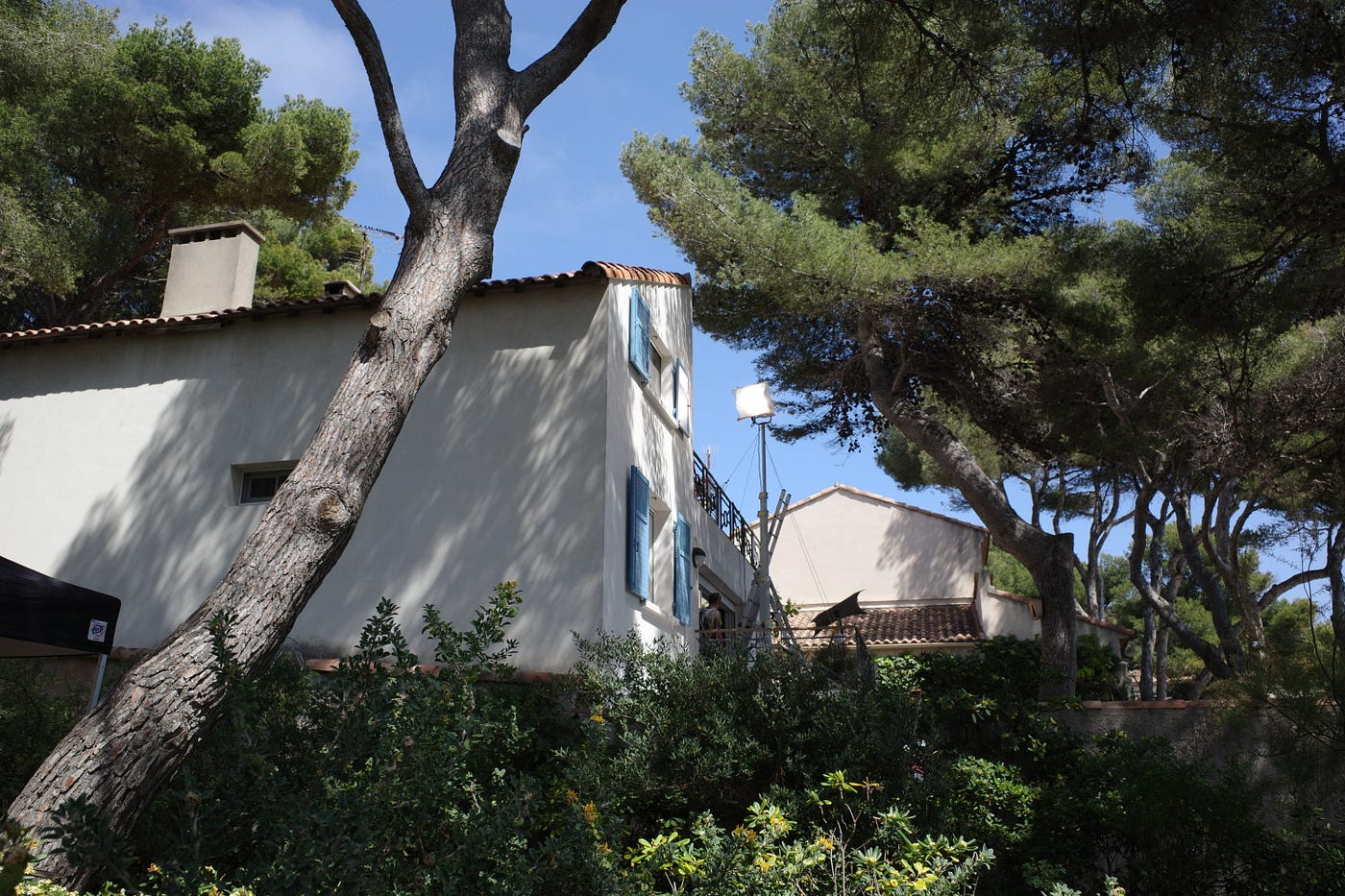
Eventually, a driver for the film company arrived at the hotel and drove me to the film shoot location. He had a strong Marseillais accent that I had trouble understanding. We arrived at a wealthy-looking suburb along the coast somewhere. There were film crew setting up equipment in the buildings around us.
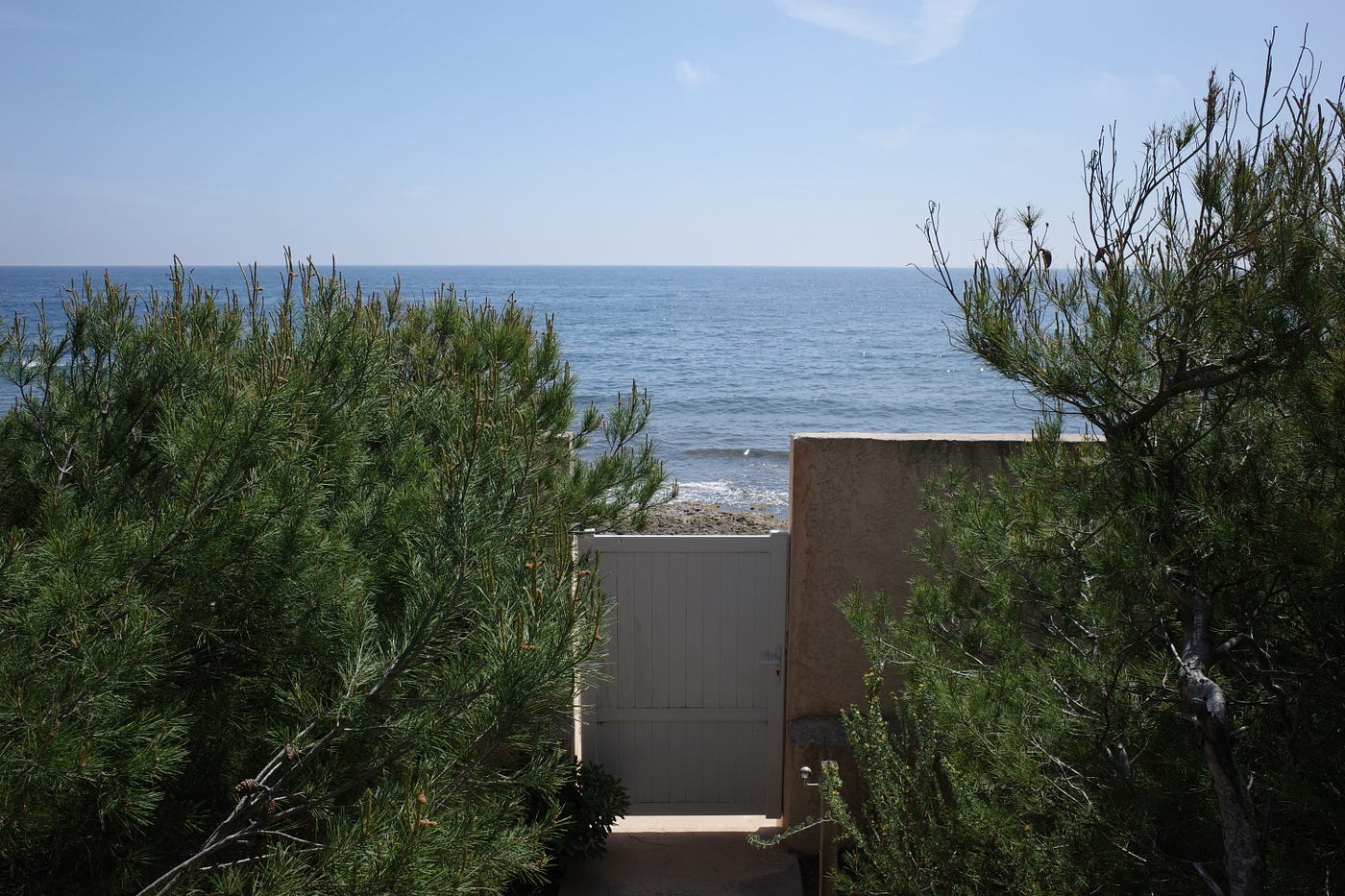
It was lunchtime and people were dining in the sun. I was instantly greeted by some of the film crew and got myself a plate of food from the catering service.
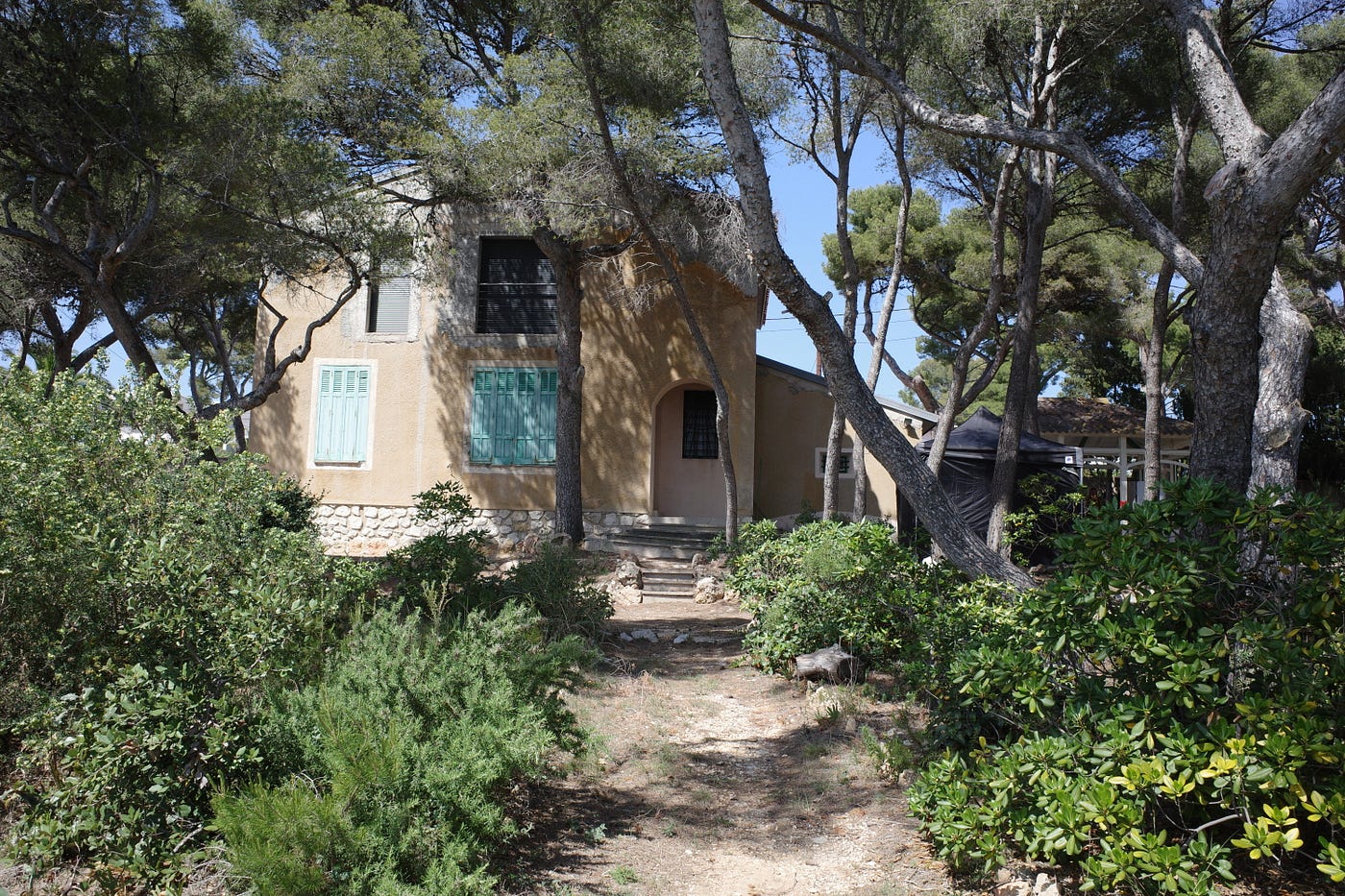
There wasn’t a cloud in the sky.
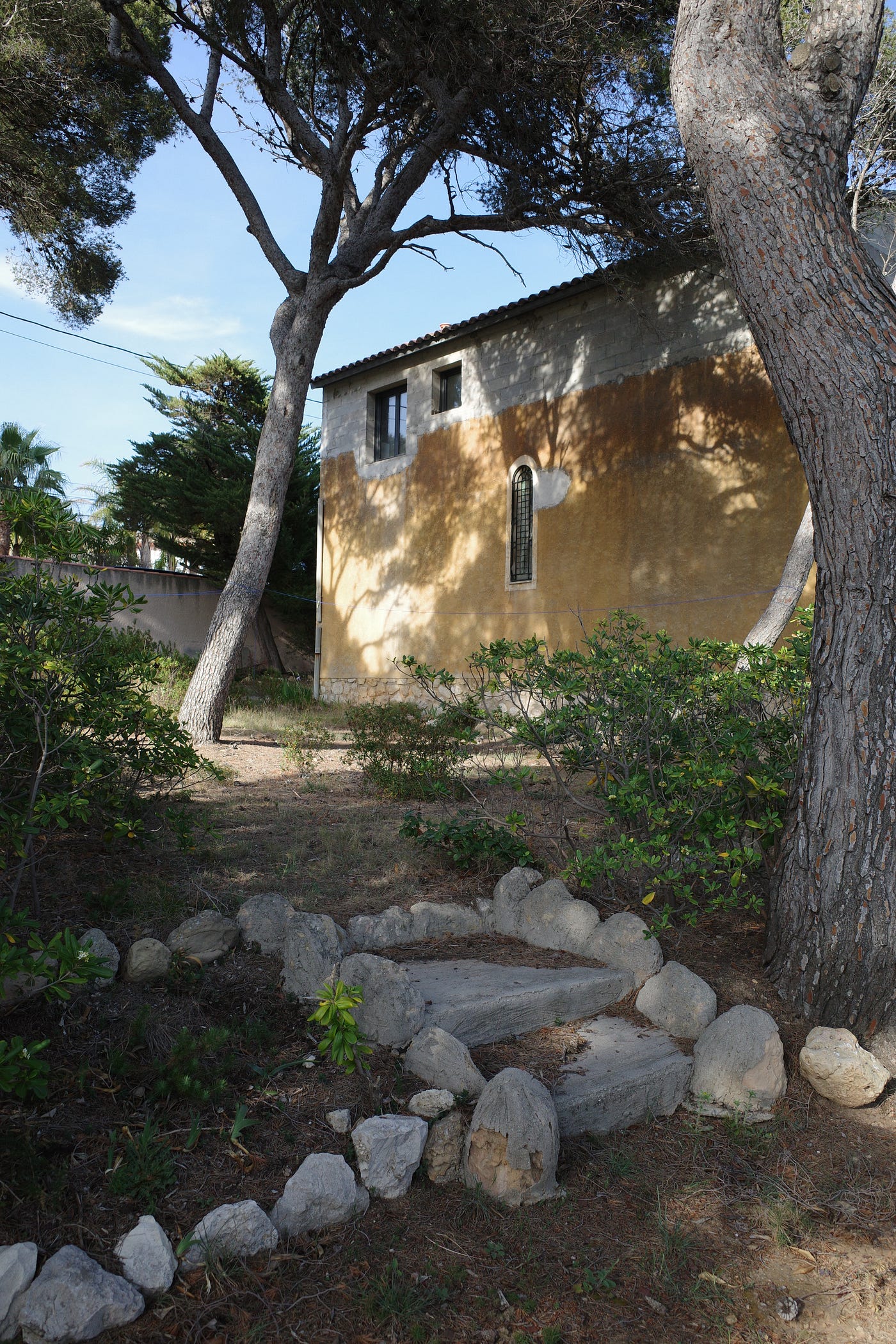
Though it was early May, it already felt like summer.
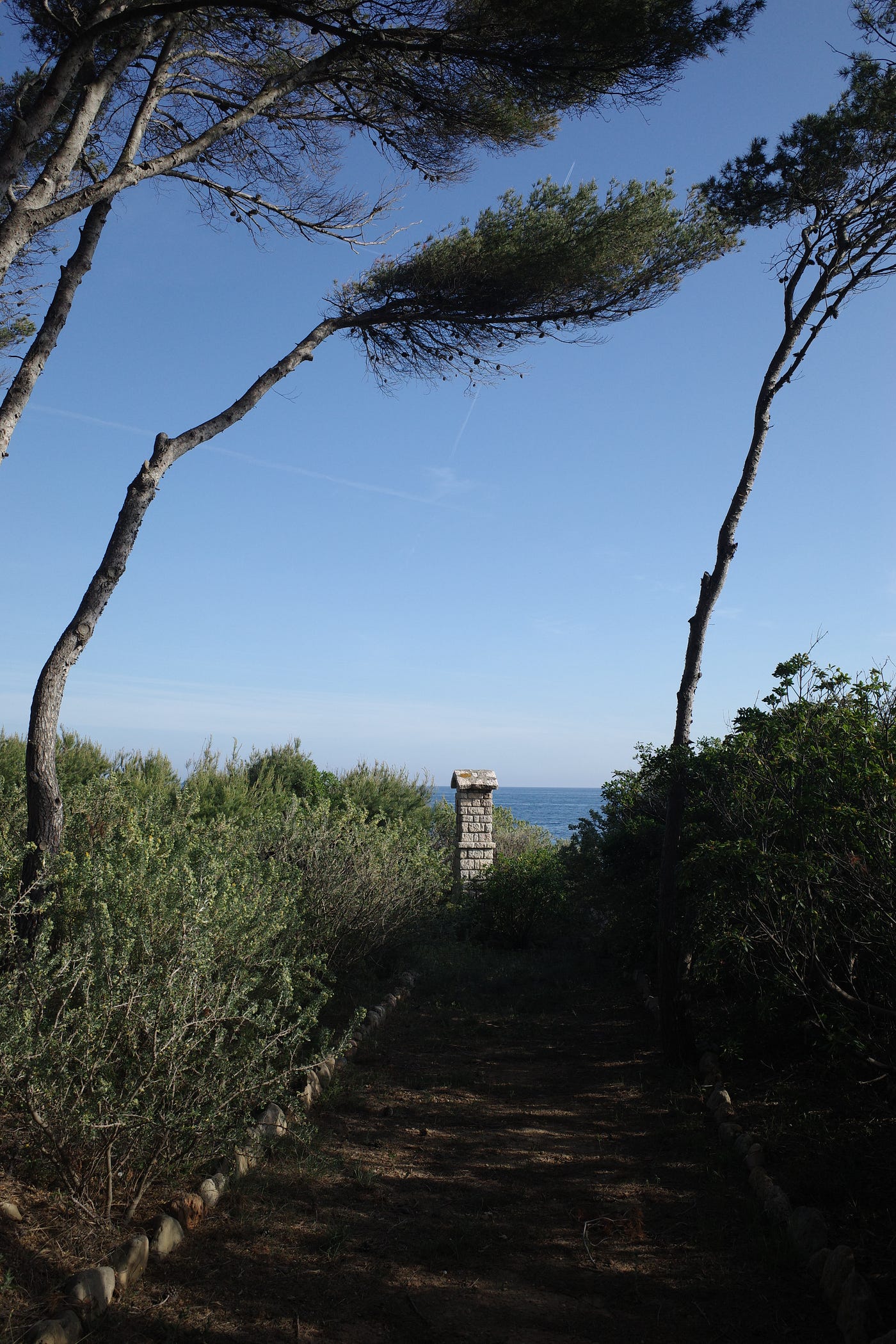
With the sound of waves crashing along the beach, the long winter nights spent working on draft script after draft script were beginning to feel like a distant memory.
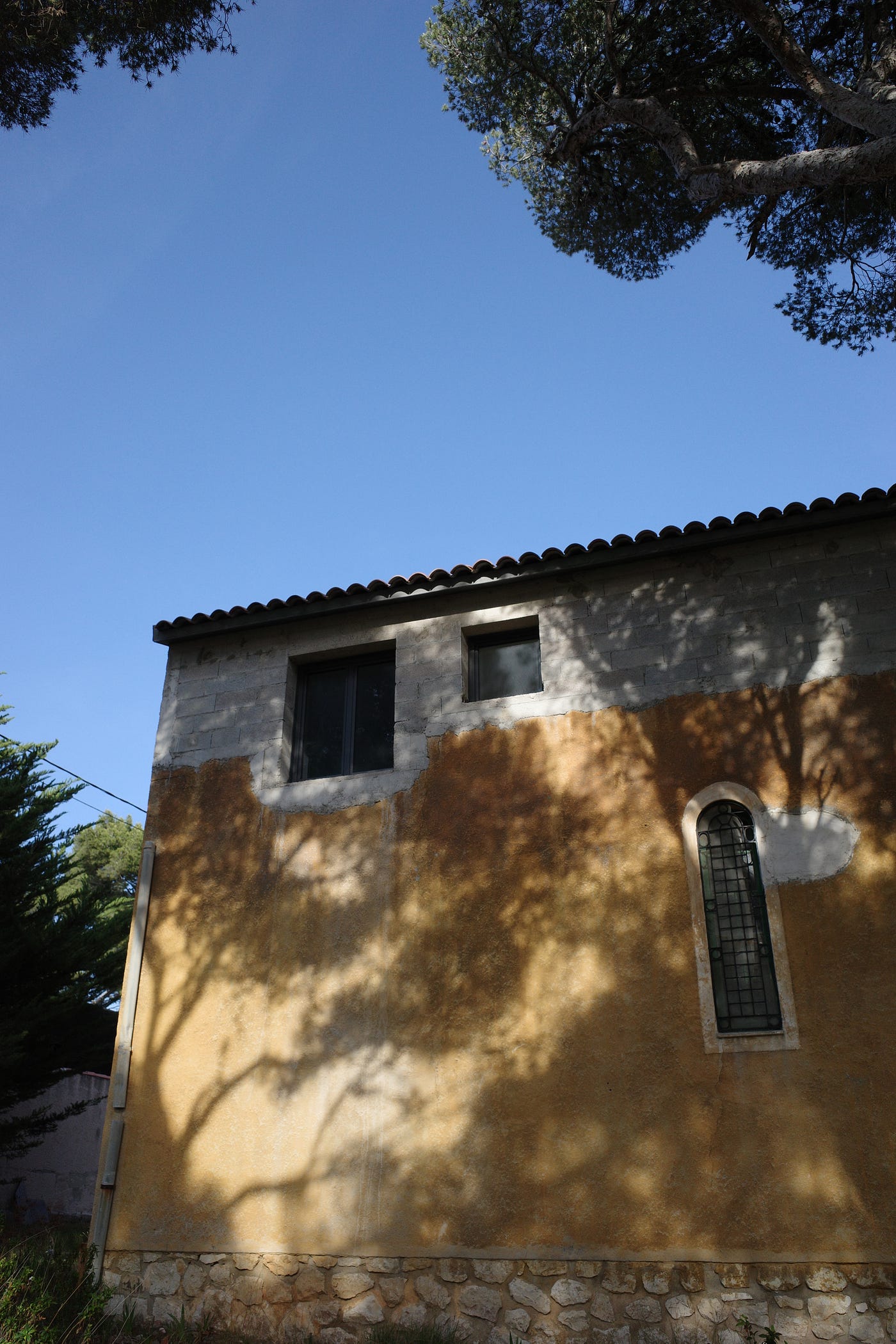
Though working advertising film shoots may sound glamorous, they’re actually a lot of work. As a creative on a film project, you have to spend hours, in a room or under a tent, watching take after take on a monitor and letting the director know when you’re satisfied with one. It’s a funny arrangement in a way, because you’re basically directing the director. While they may be happy with how a take turns out, you can still overrule them. You’re the boss, in a sense, but as you’re in charge, you don’t have time to go sit on the beach. There’s work to do, and acting to watch. You’re basically a security guard in paradise.
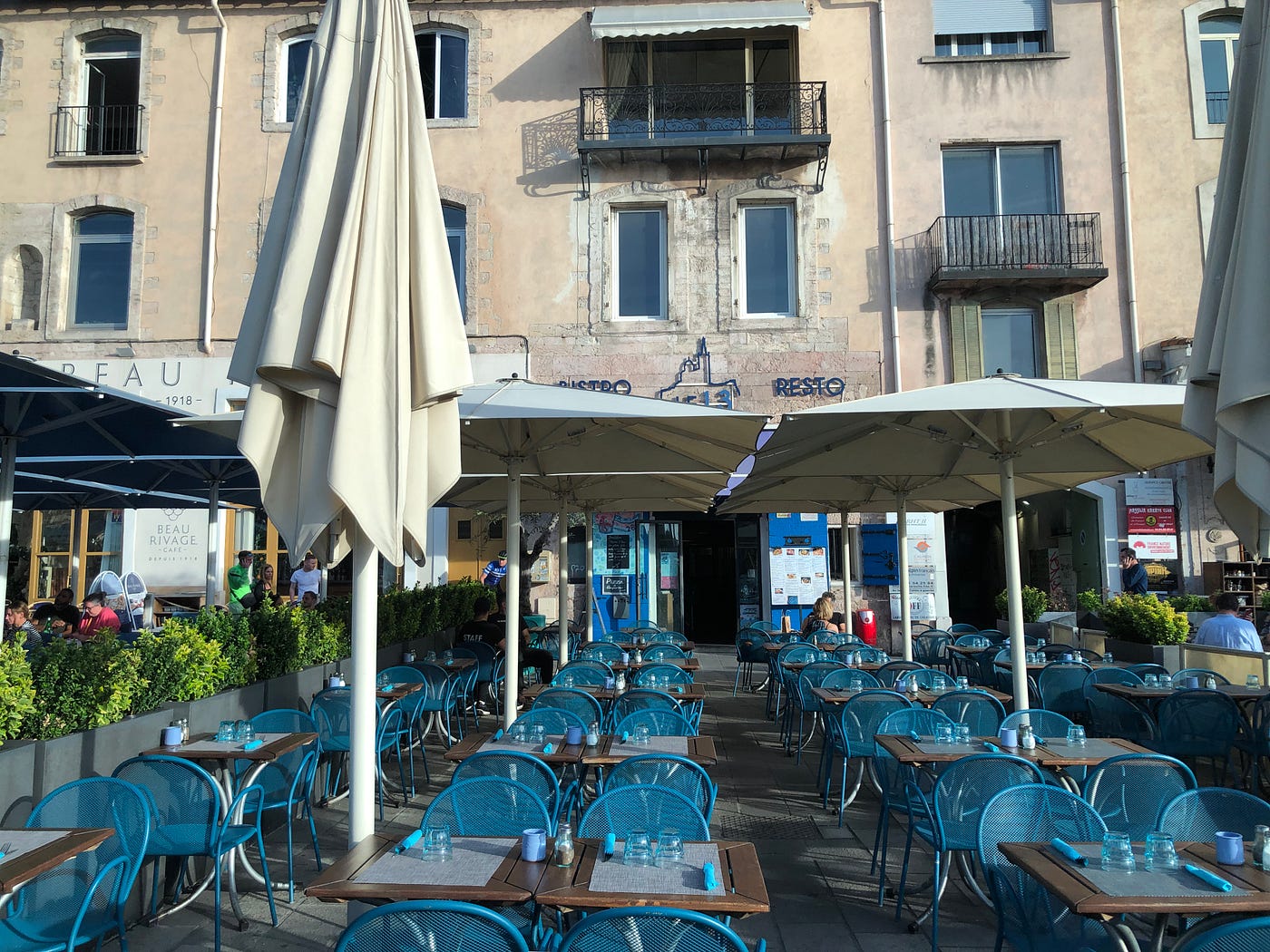
We shot a couple of short films that afternoon, before wrapping up for the day. The production company then invited us out for dinner.
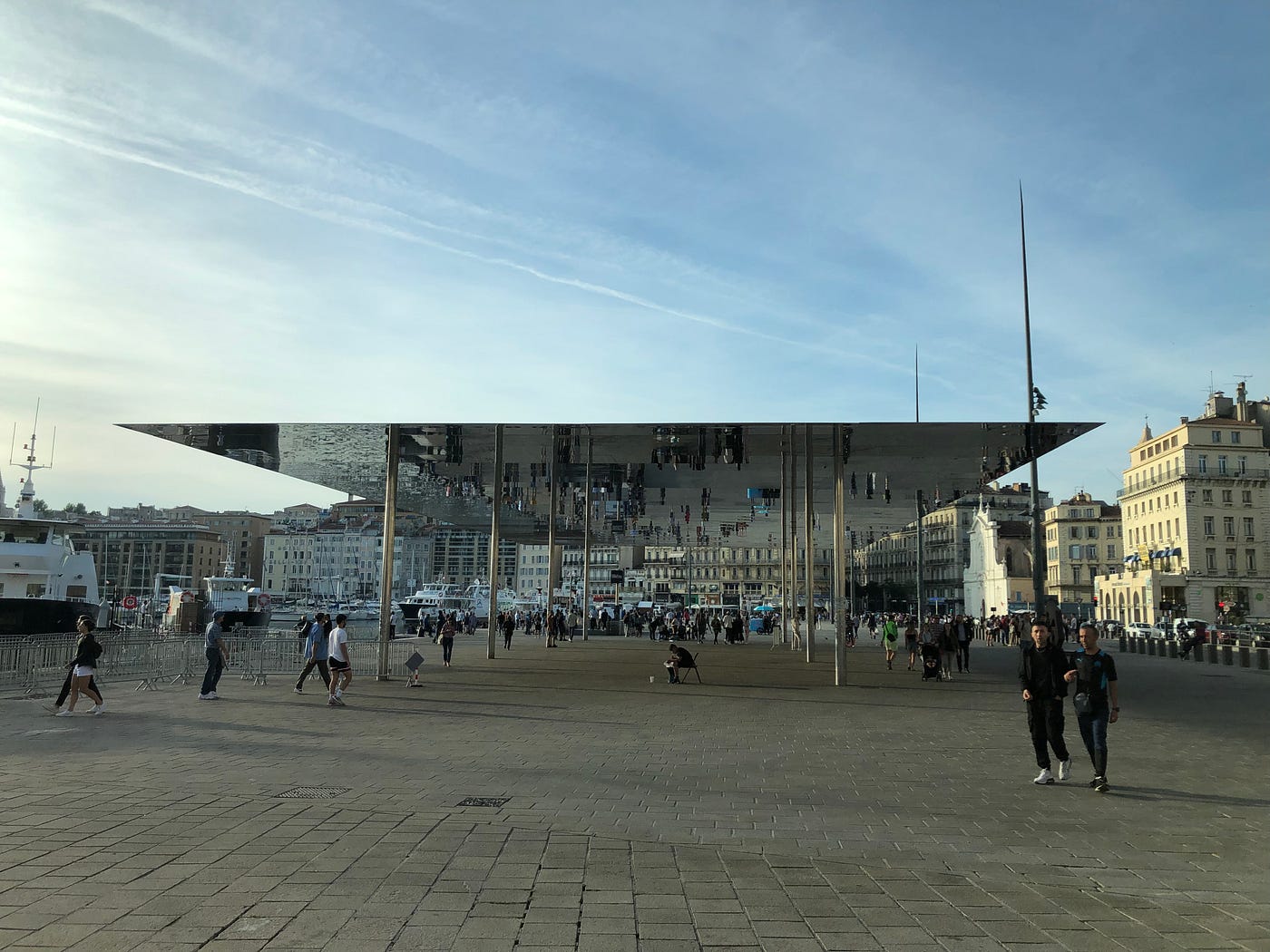
It wasn’t my first time in Marseille. In 2008, I had been an exchange student at a high school in Sisteron, a town in the Alpes-de-Haute-Provence, a department in the South-east of France. On one occasion, my class took a bus down to Marseille to attend a theatrical performance of Harold Pinter’s The Dumb Waiter.
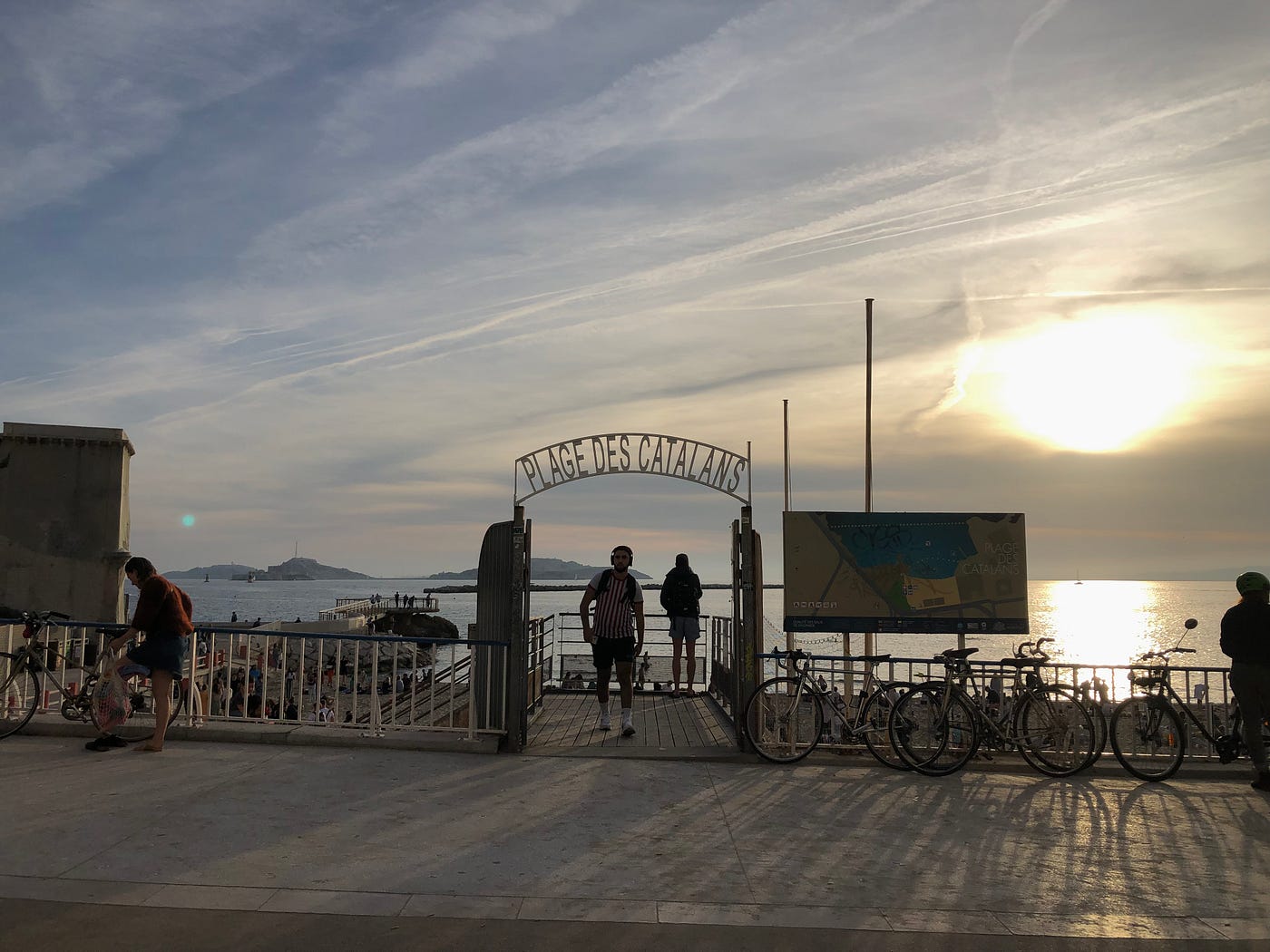
When we arrived in the city, I could see a look of quiet terror in many students’ eyes. To them, who had grown up in the French countryside, Marseille must have been the big smoke — a big, daunting city.
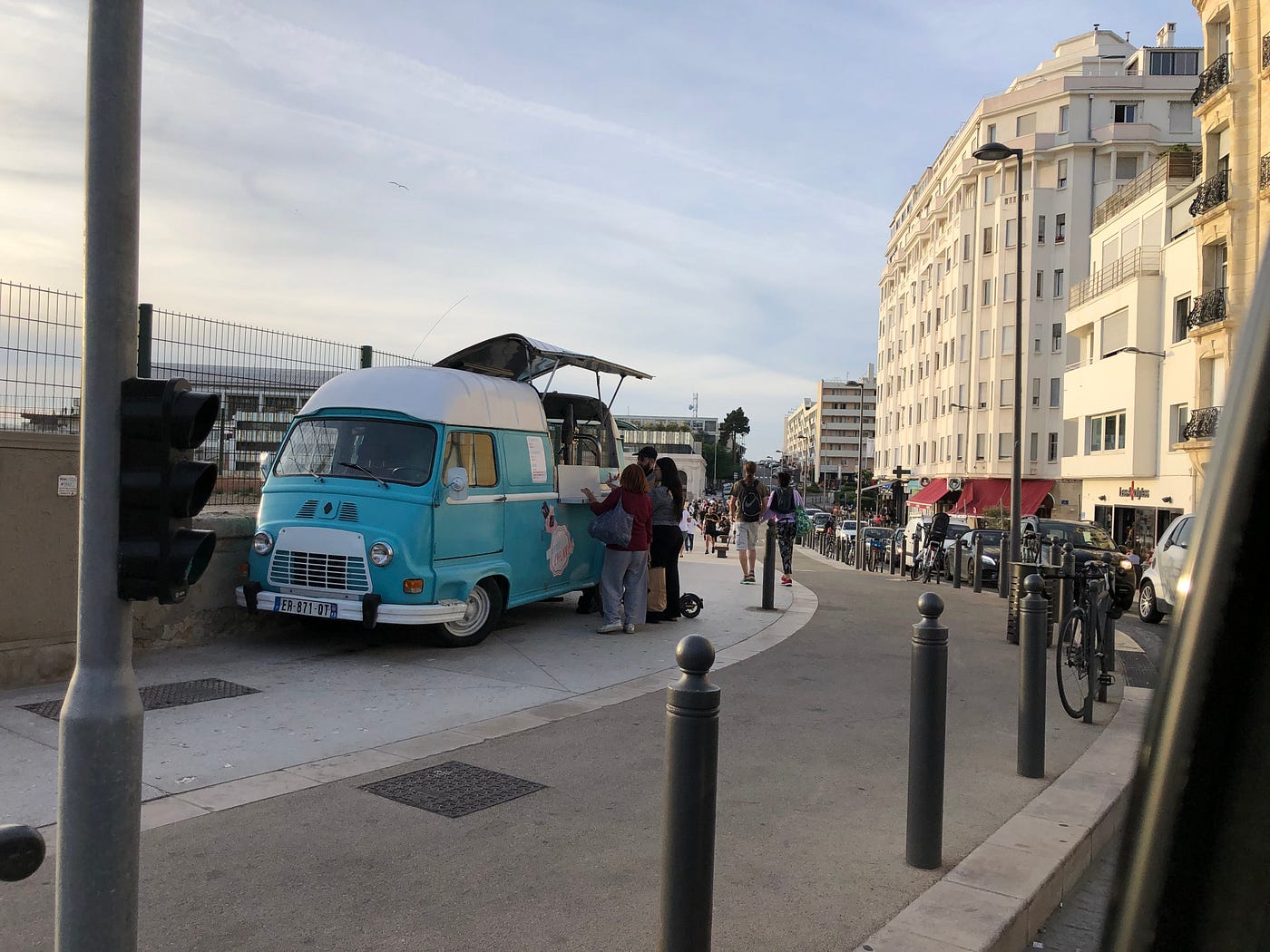
As Sisteron is less than two hours from Marseille, a lot of my classmates supported Olympique de Marseille — or L’OM, as they called it.
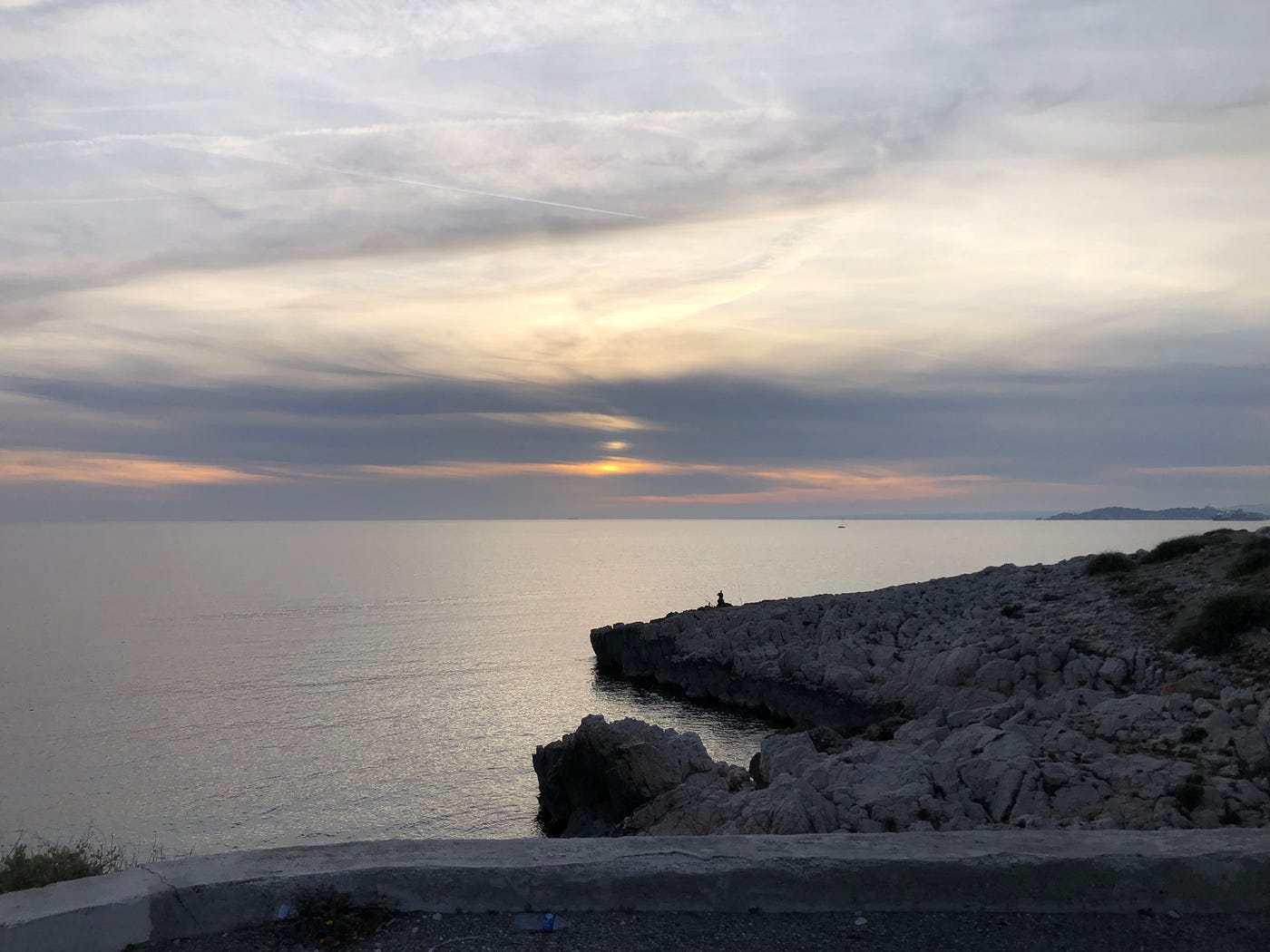
I had also briefly visited Marseille with my host family in December that year. We stopped outside the Vélodrome, the stadium of Olympique de Marseille, the city’s beloved football club. Outside the stadium, a photographer seemed to want to take a photo of us, but my host mother quickly figured out that he was trying to make a buck, and firmly declined his offer, much to his disappointment. We went inside the stadium shop where I bought myself an OM scarf.
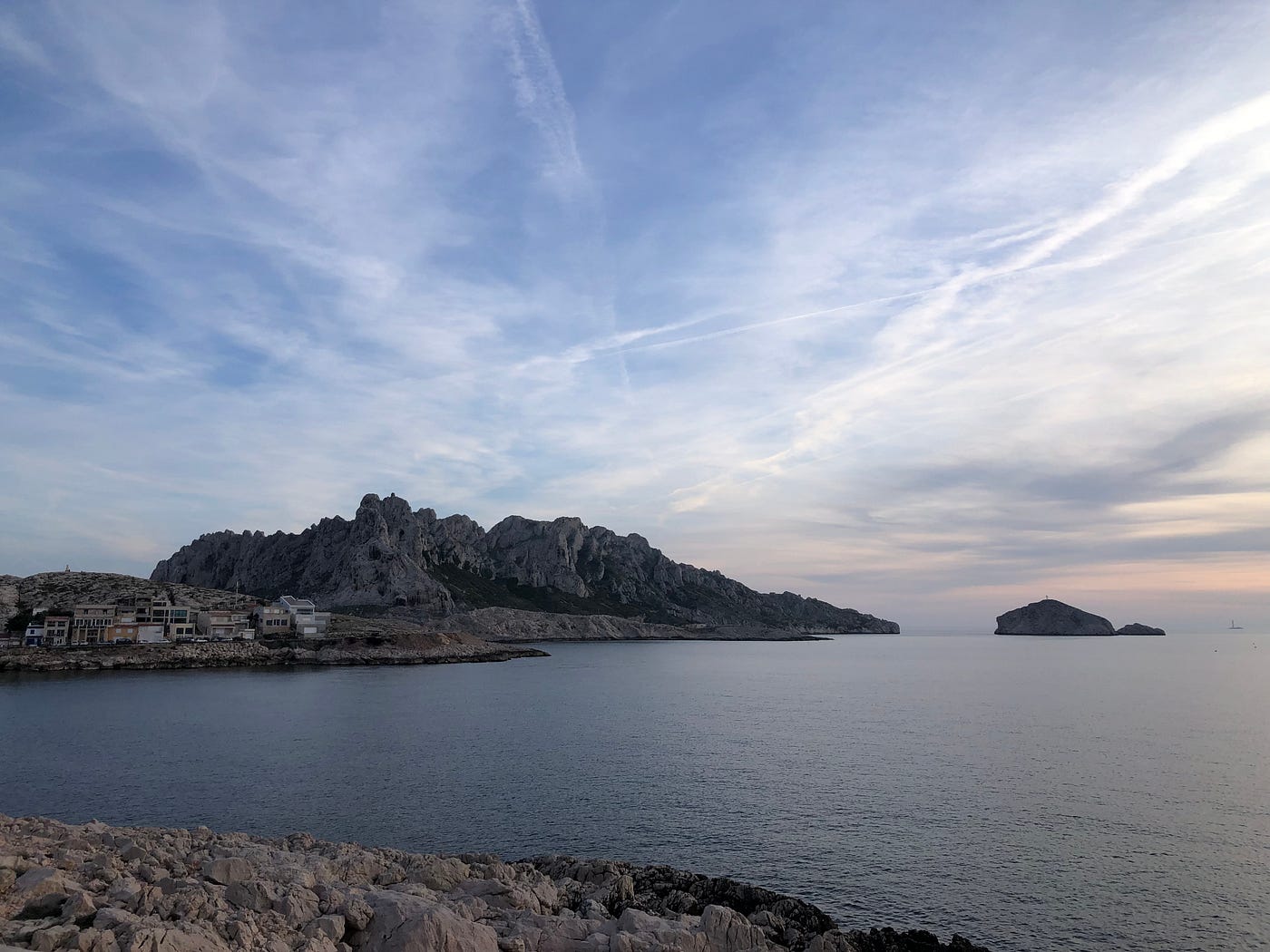
We headed in the direction of les calanques, a geological formation characterised by pointy white rocks and green shrubbery. When I observed that it looked a bit like Game of Thrones, someone in the van started humming the theme song.
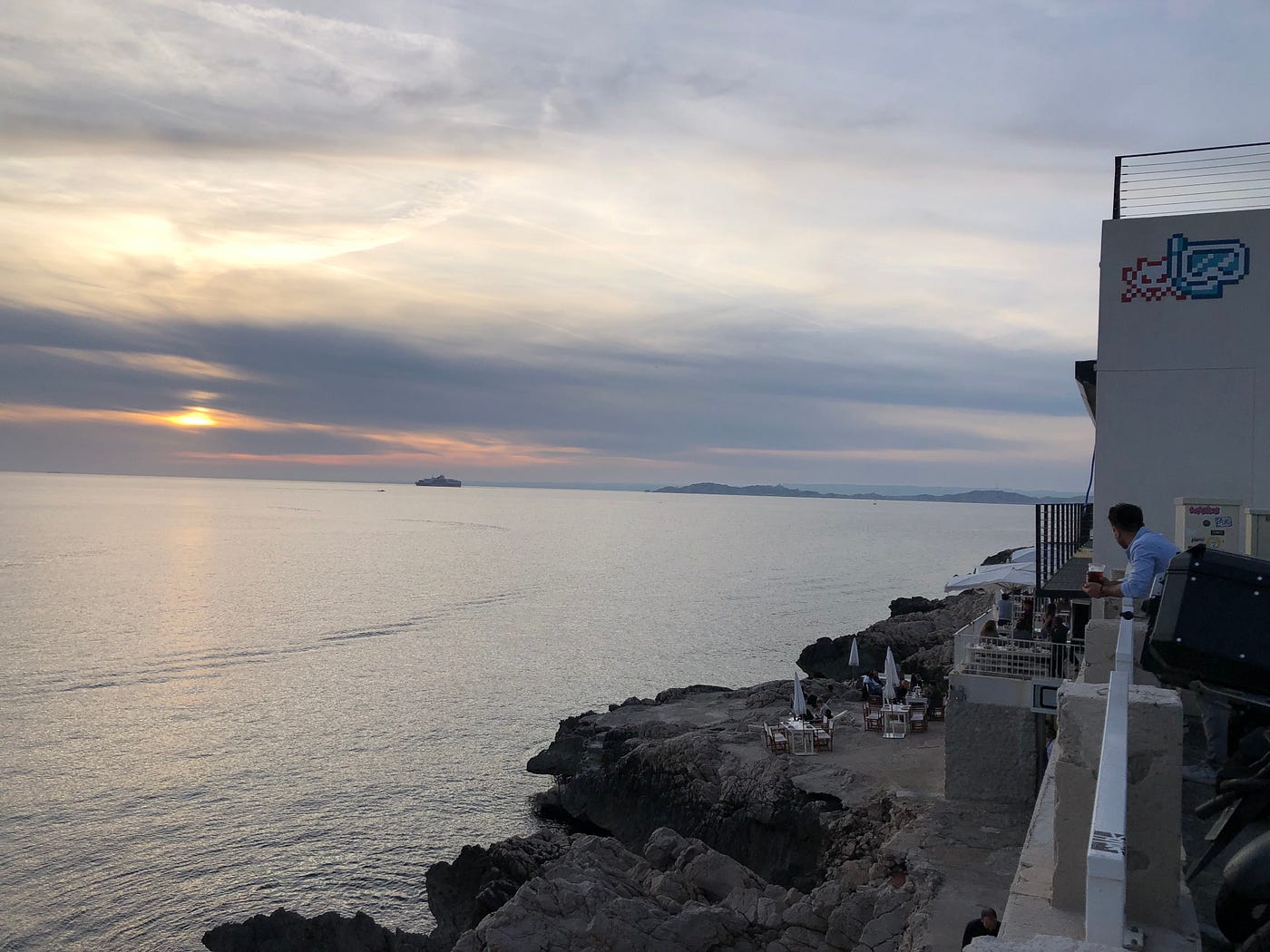
We then arrived at a bar besides the sea.
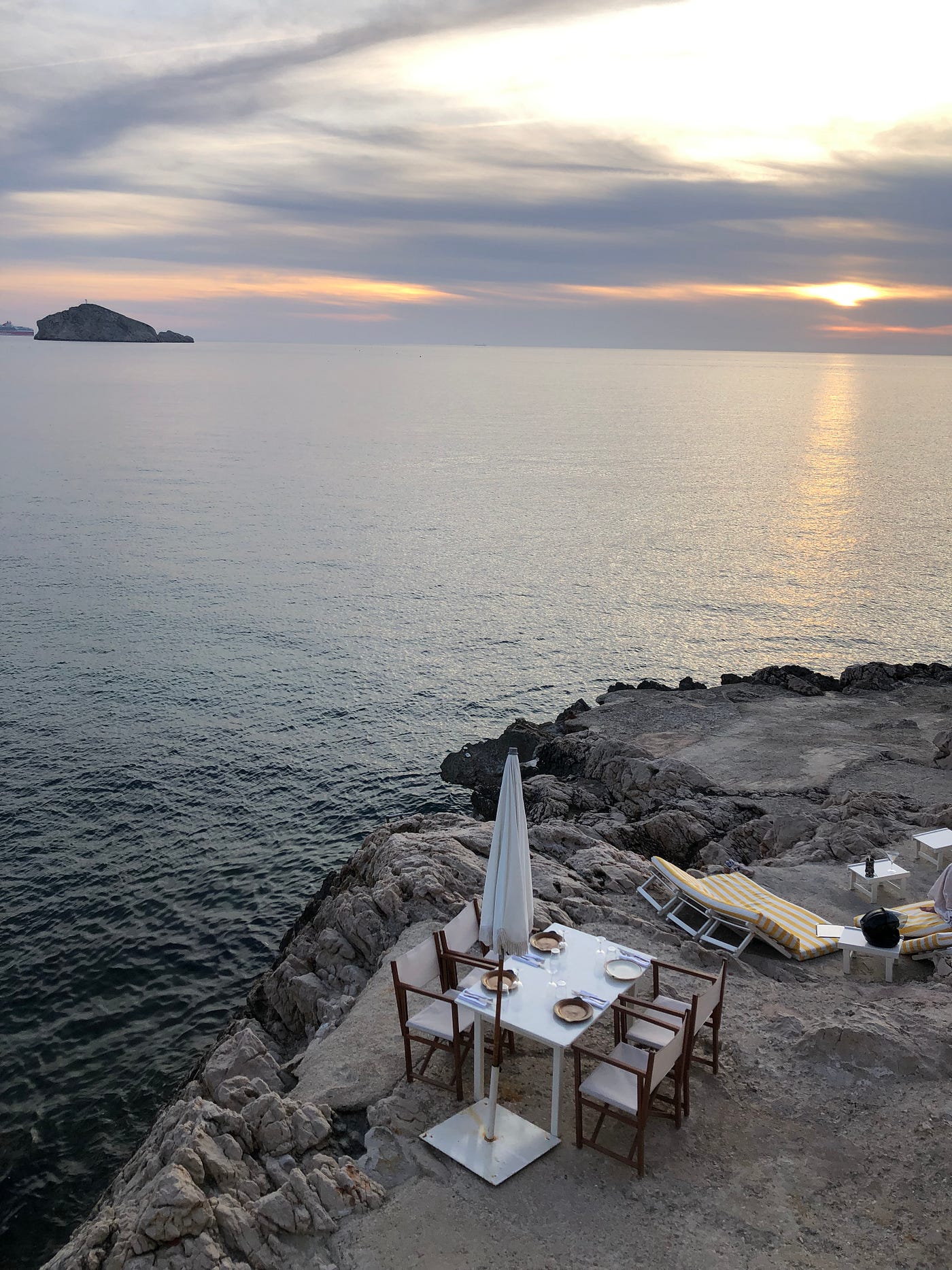
It radiated Mediterranean decadence.
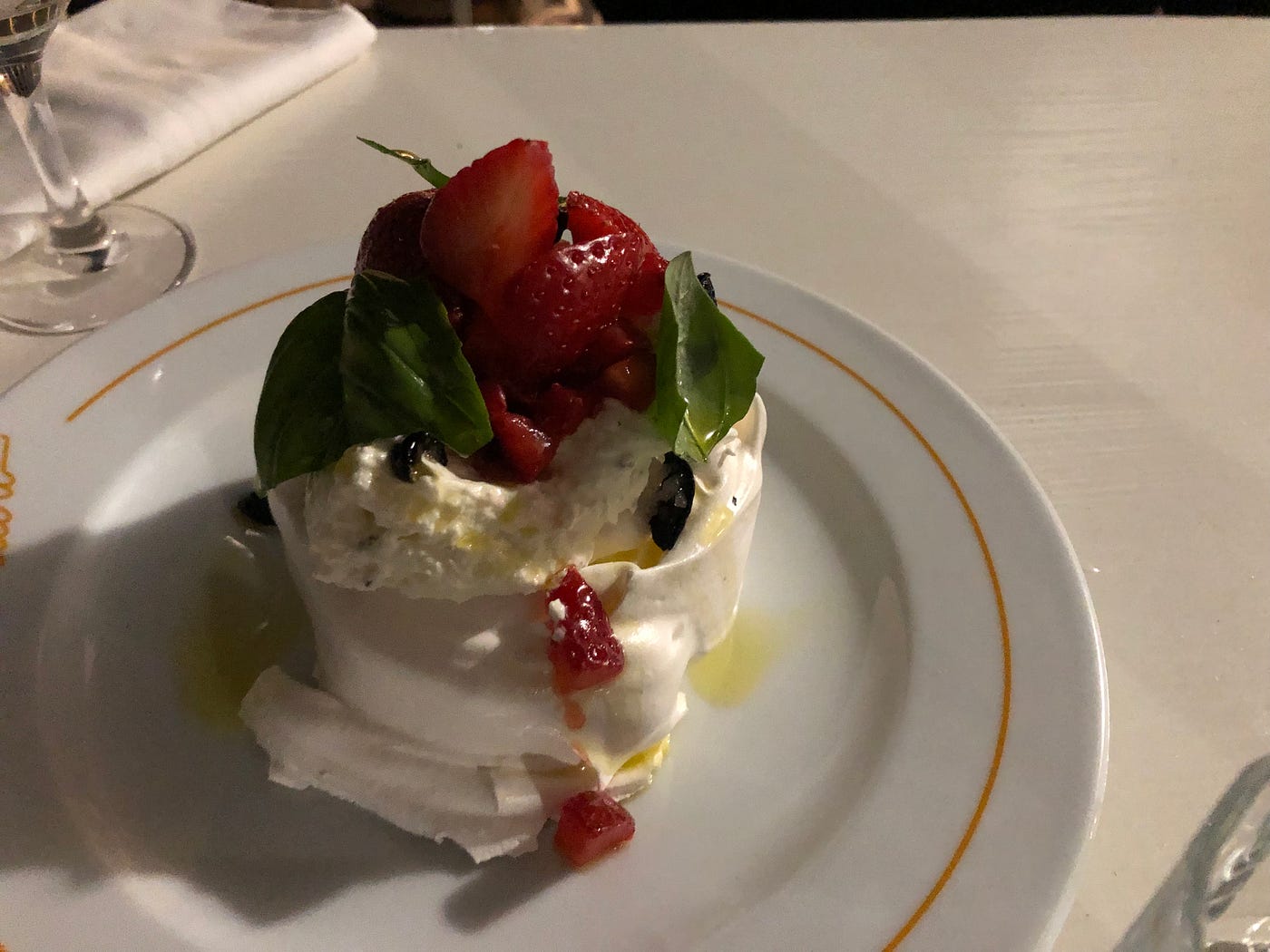
Dinner went out for hours on end. I was the first party pooper, leaving in a taxi at midnight. Others were planning to spend the whole night partying.
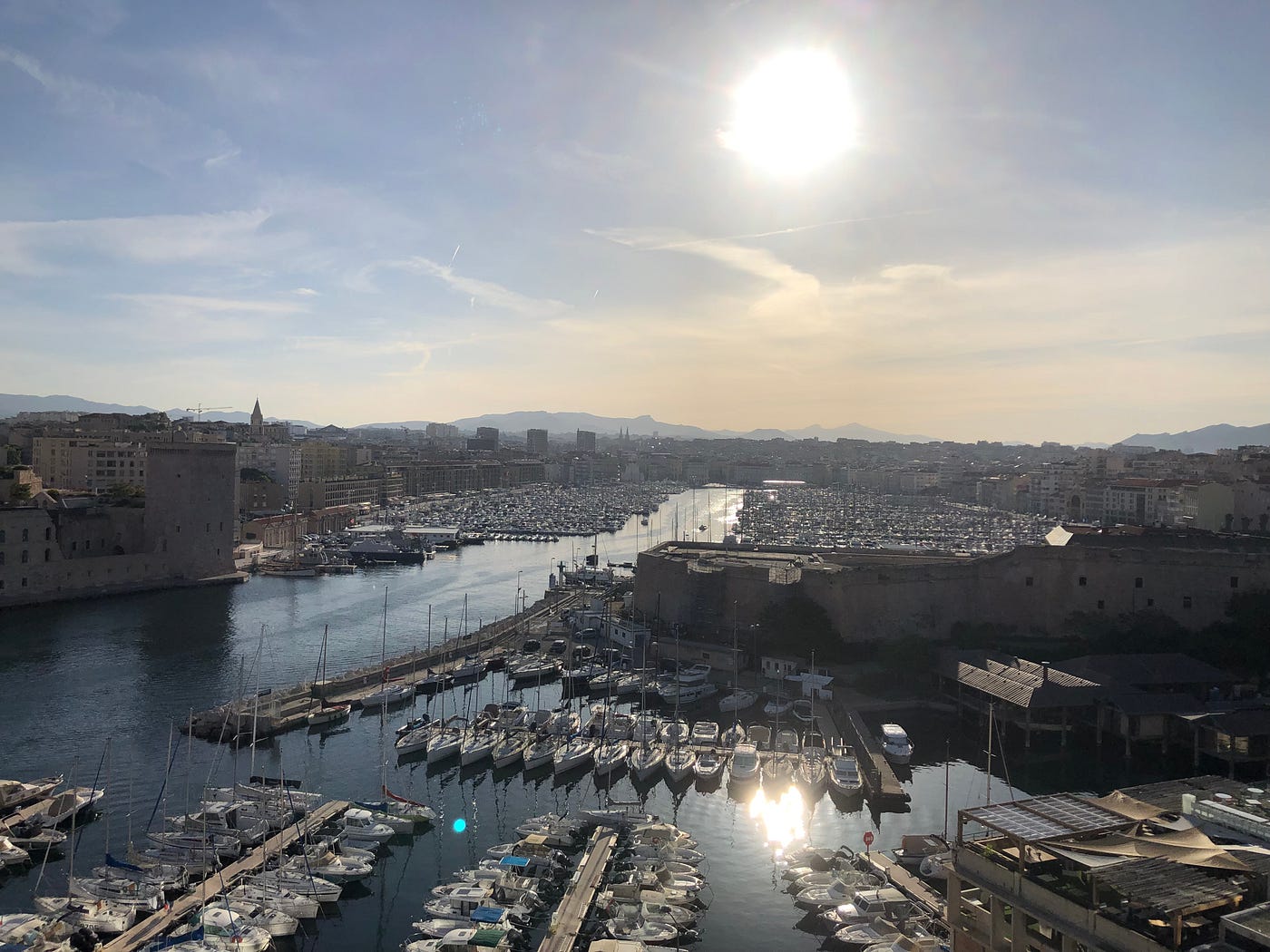
The next morning, I got up at 7am and went up onto the rooftop for breakfast. There were staff on hand, ready to respond to any request. There was a magnificent view of the harbour, but as we had to leave by 8am, I had to swallow my breakfast in the space of ten minutes. Though the hotel oozed luxury, I had no time to wallow in it.
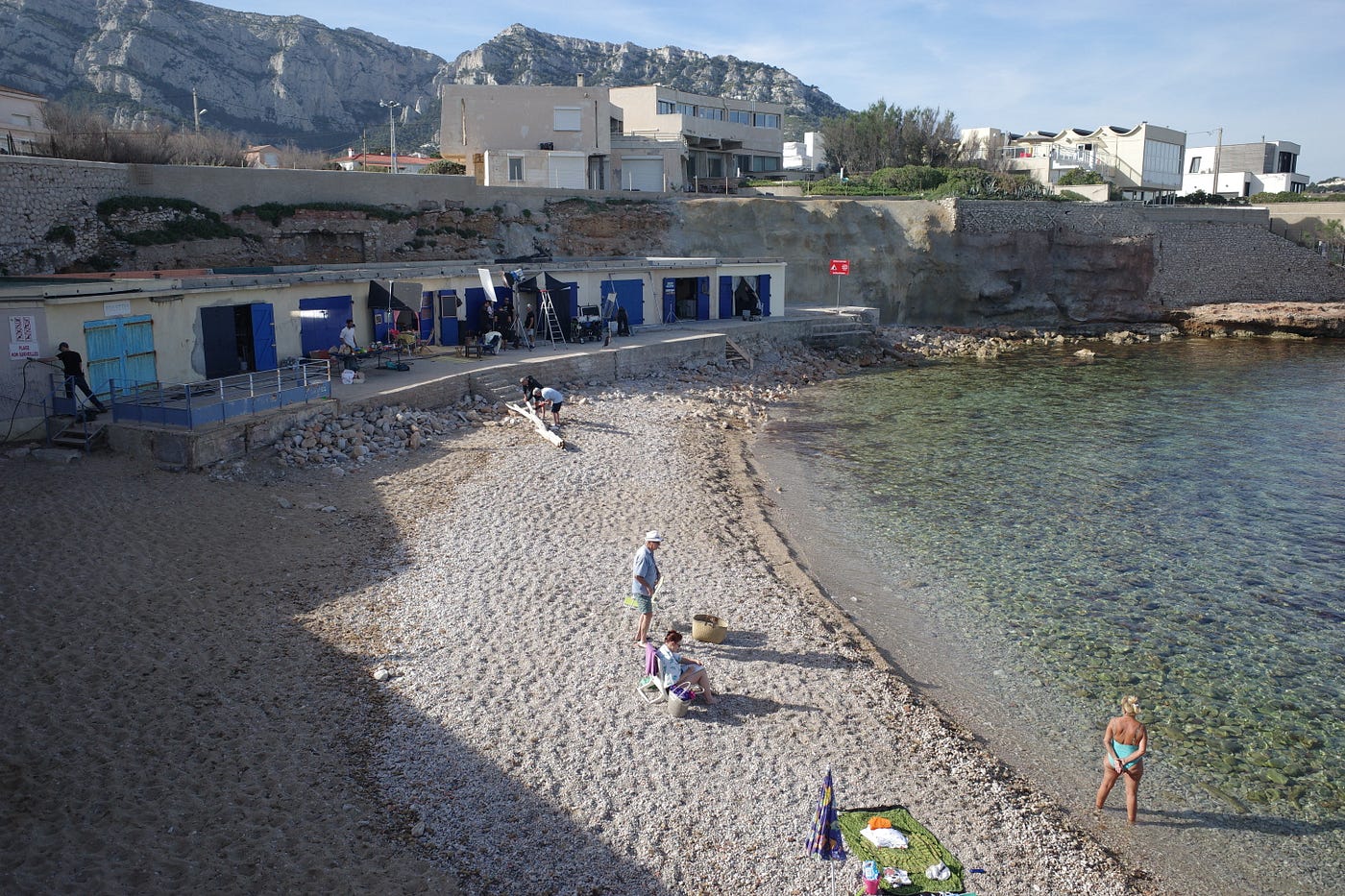
We took the van to our next film shoot — a beach along the coastline. When we arrived, there were trucks crammed with film gear.
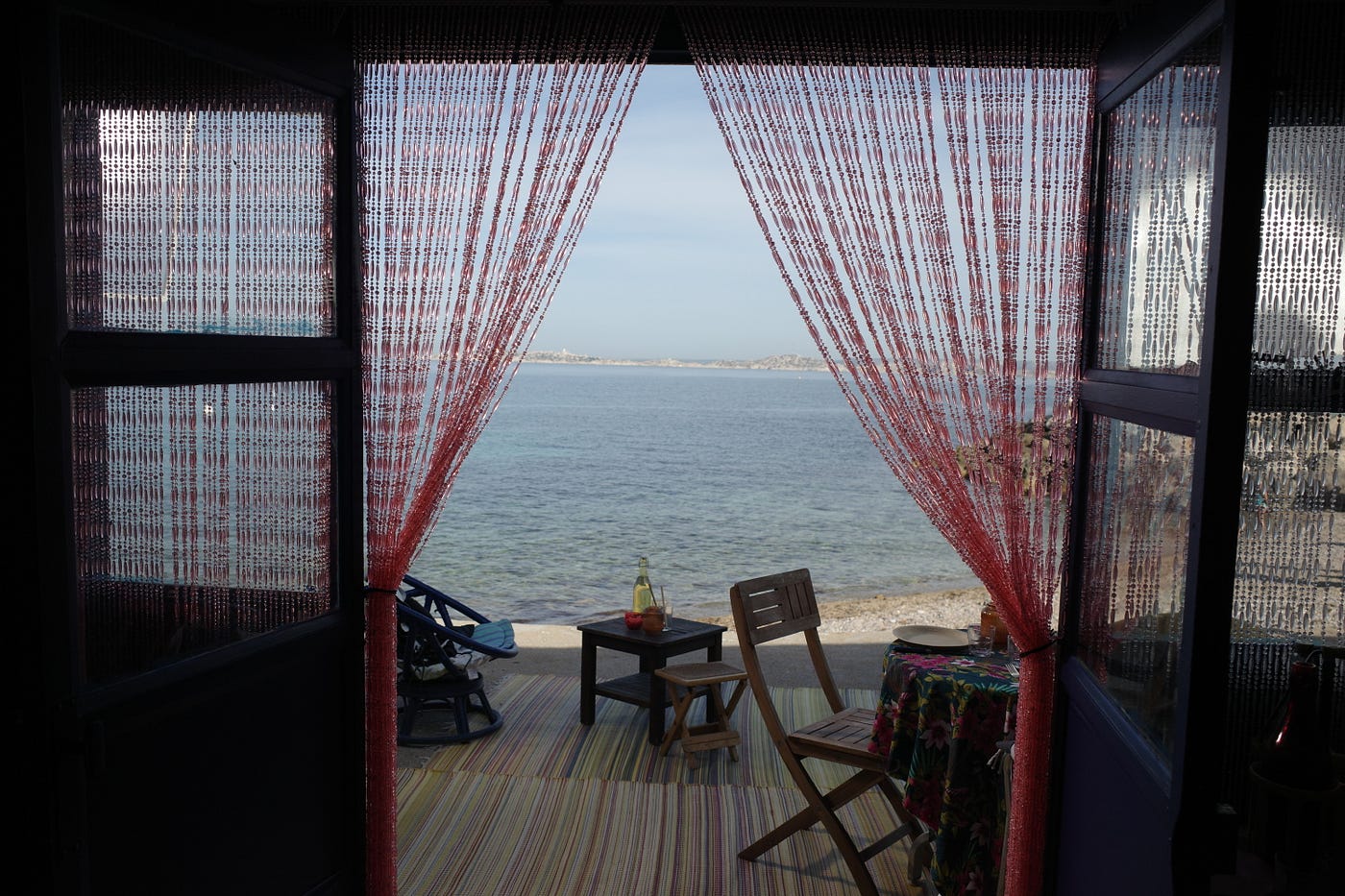
One of the sheds was being designed to look like a restaurant.
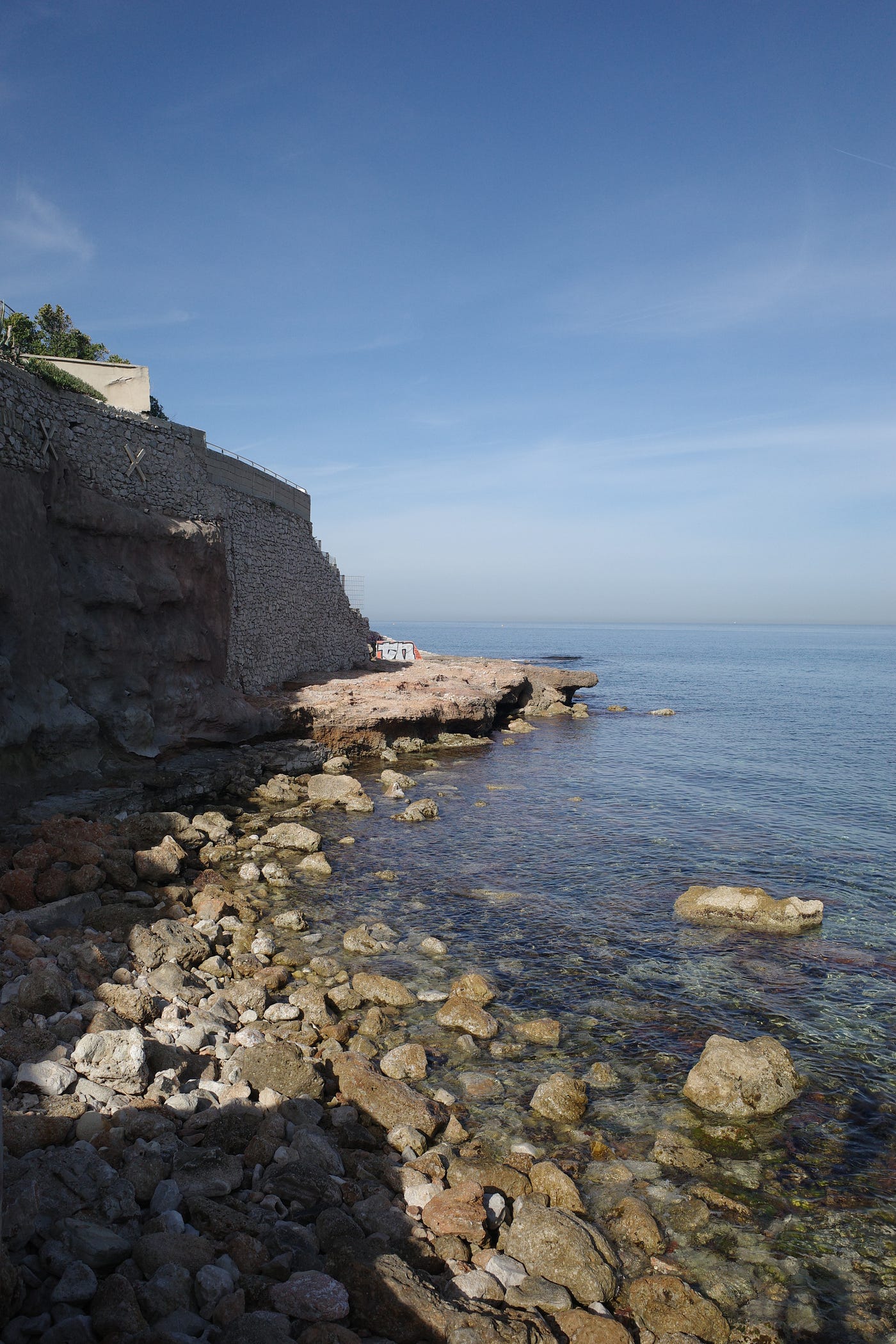
Crew were setting up the lights and putting all the props in place. I’ve always been amazed by how professional film crews can be. Everyone knows their role and no one wastes a second to fulfill them.
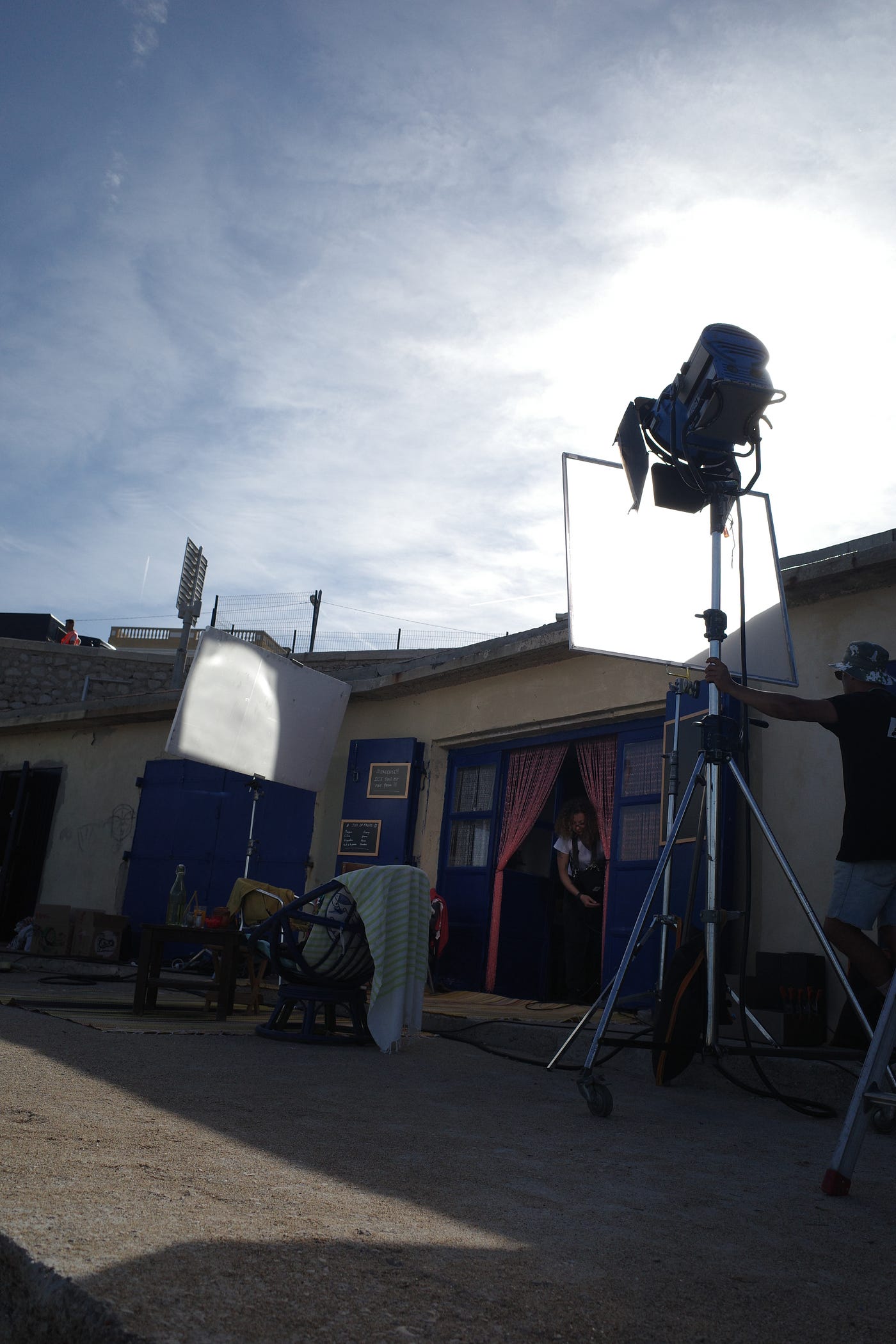
It was another beautiful morning, but once again, we were too busy watching millions of takes to take in the surroundings.
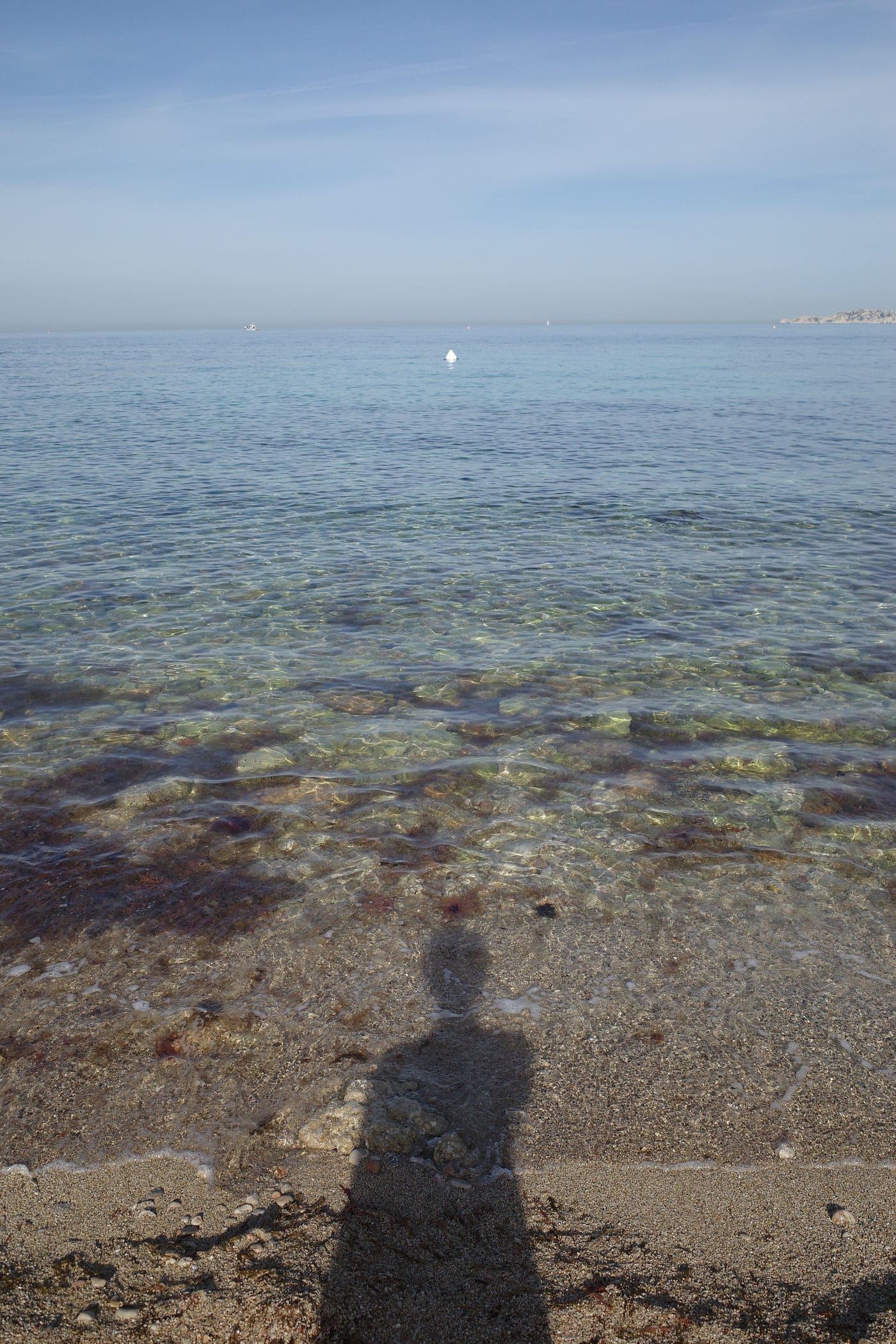
It was only during our lunch break that we had some time to ourselves. The cooks had prepared a salad with a poached egg, cured ham, and a kind of citrus-y dressing. It was one of the most delicious salads I had ever eaten.
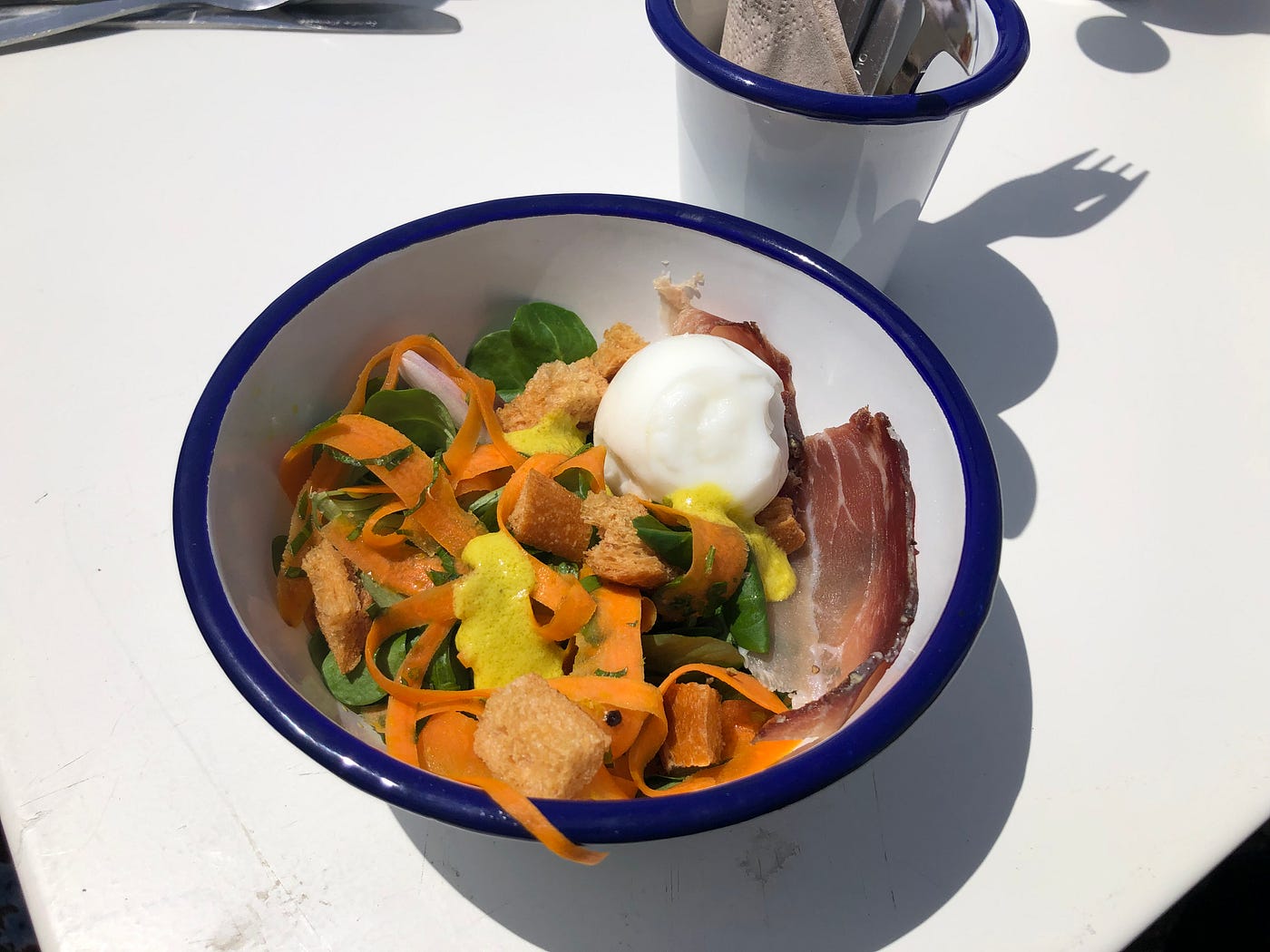
As we were shooting on a public beach, a lot of people were lazing about on the sand. One woman was sunbathing topless on a towel next to the makeshift restaurant, utterly unperturbed by all the film crew lugging gear past her.
Up above, many others were watching us with interest, curious to know what on earth we were up to.
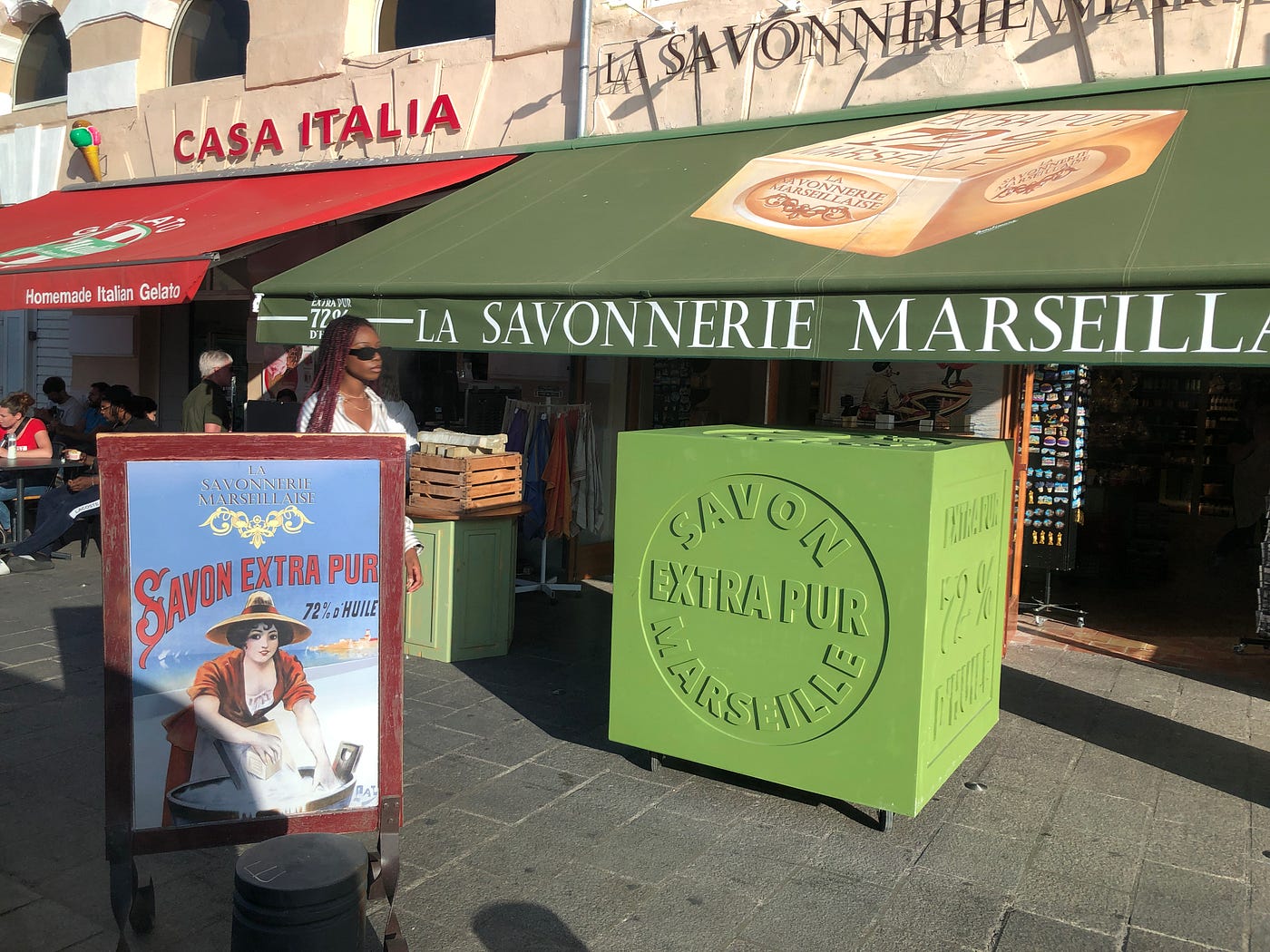
After the shoot wrapped up, we went to another restaurant — this time in central Marseille.
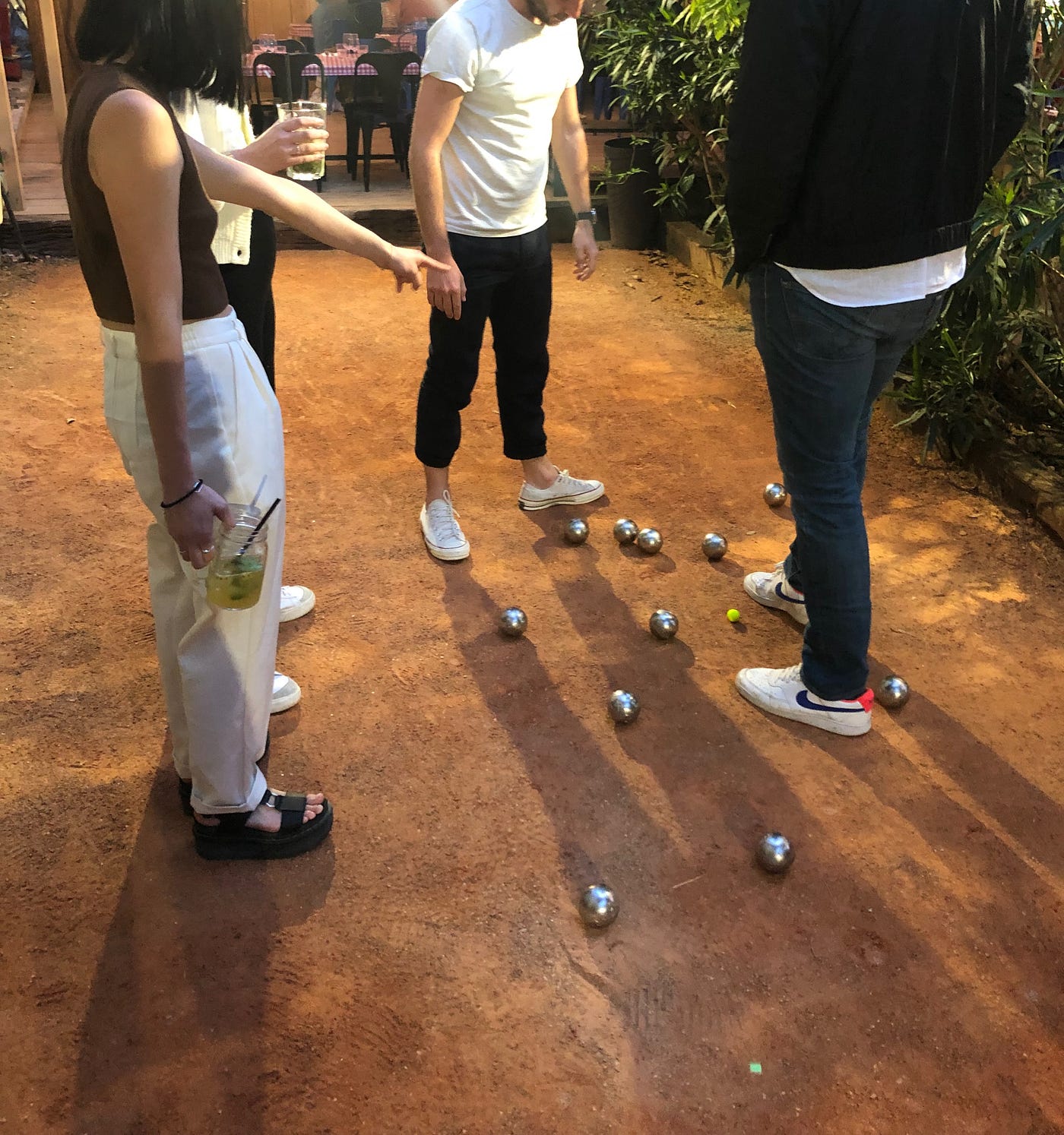
While waiting for the food to arrive, we played a few games of pétanque, which originated in Marseille. The game has always struck me as the ultimate French sport as it combines two of France’s favourite past times — drinking and arguing. As I hadn’t really played it properly before, they explained the rules to me. I, then, somehow, on my first throw, managed to win the game. I was never to repeat that success ever again.
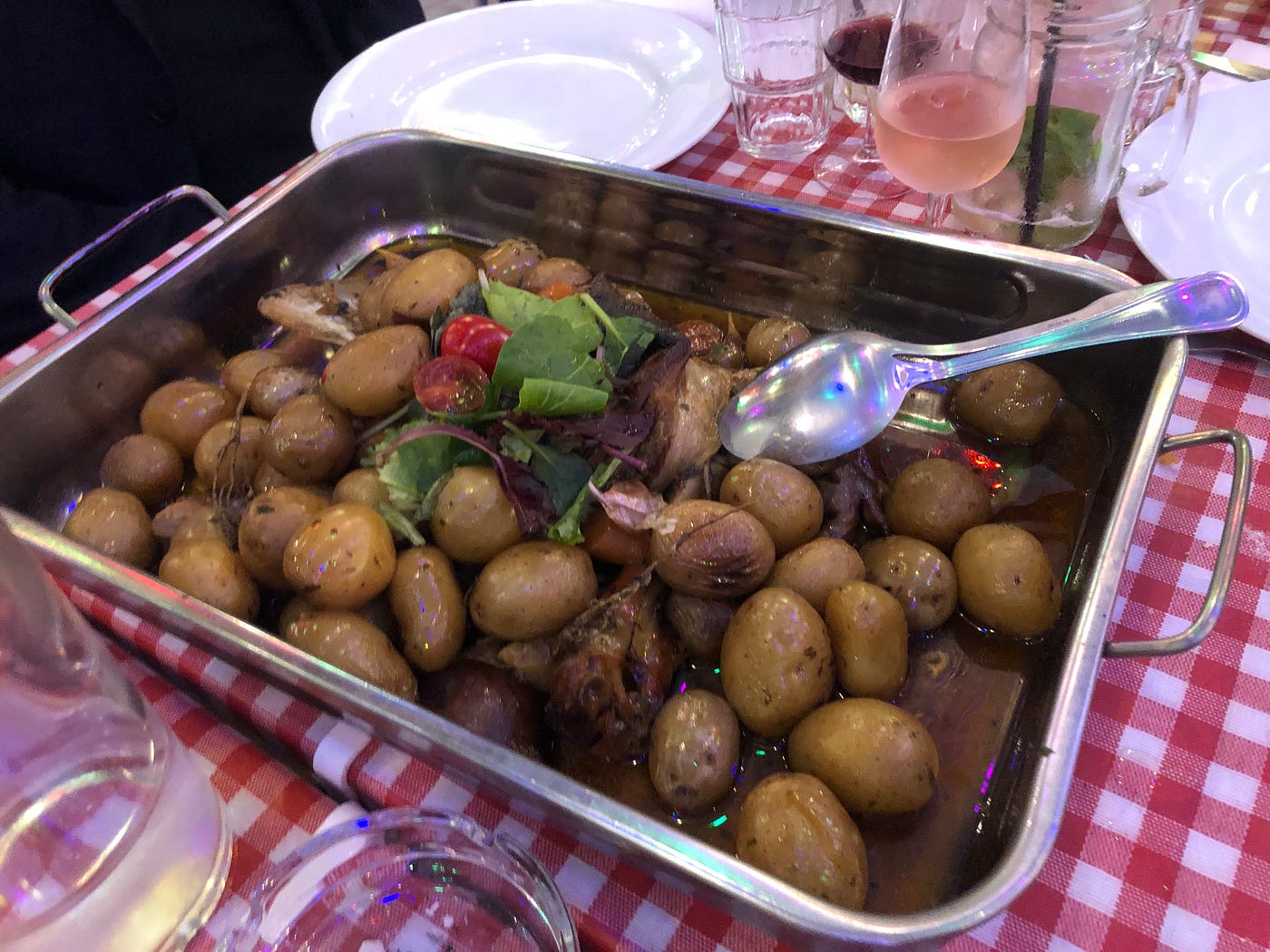
The food eventually arrived and we dug in.
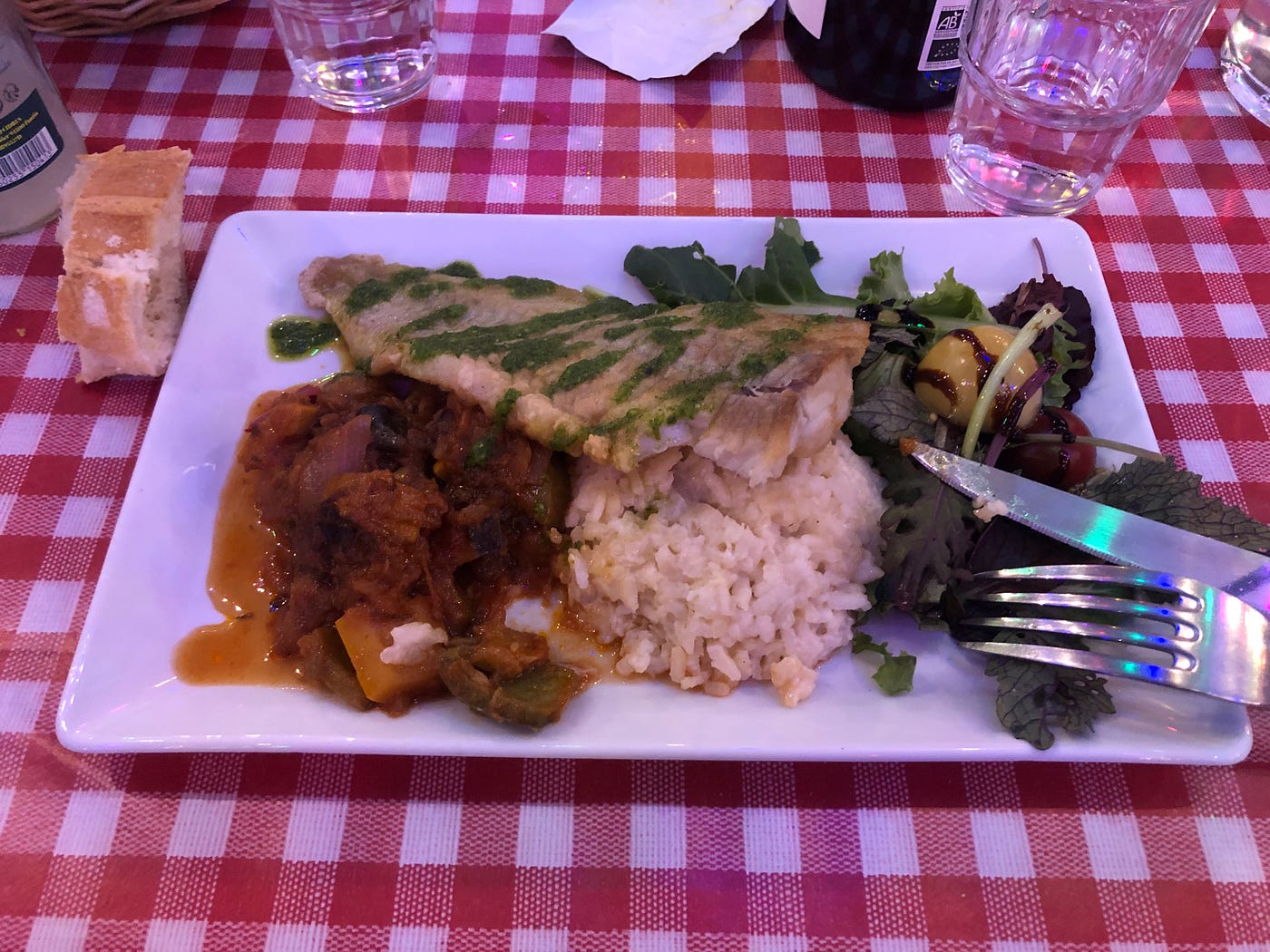
I’ve got to say that when it comes to film shoots, French production companies really go out of their way to feed their clients. When I’ve been on film shoots in New Zealand, we’ve only been given meals in plastic containers, if anything at all. France prioritises meals in a way that the English-speaking world simply doesn’t.
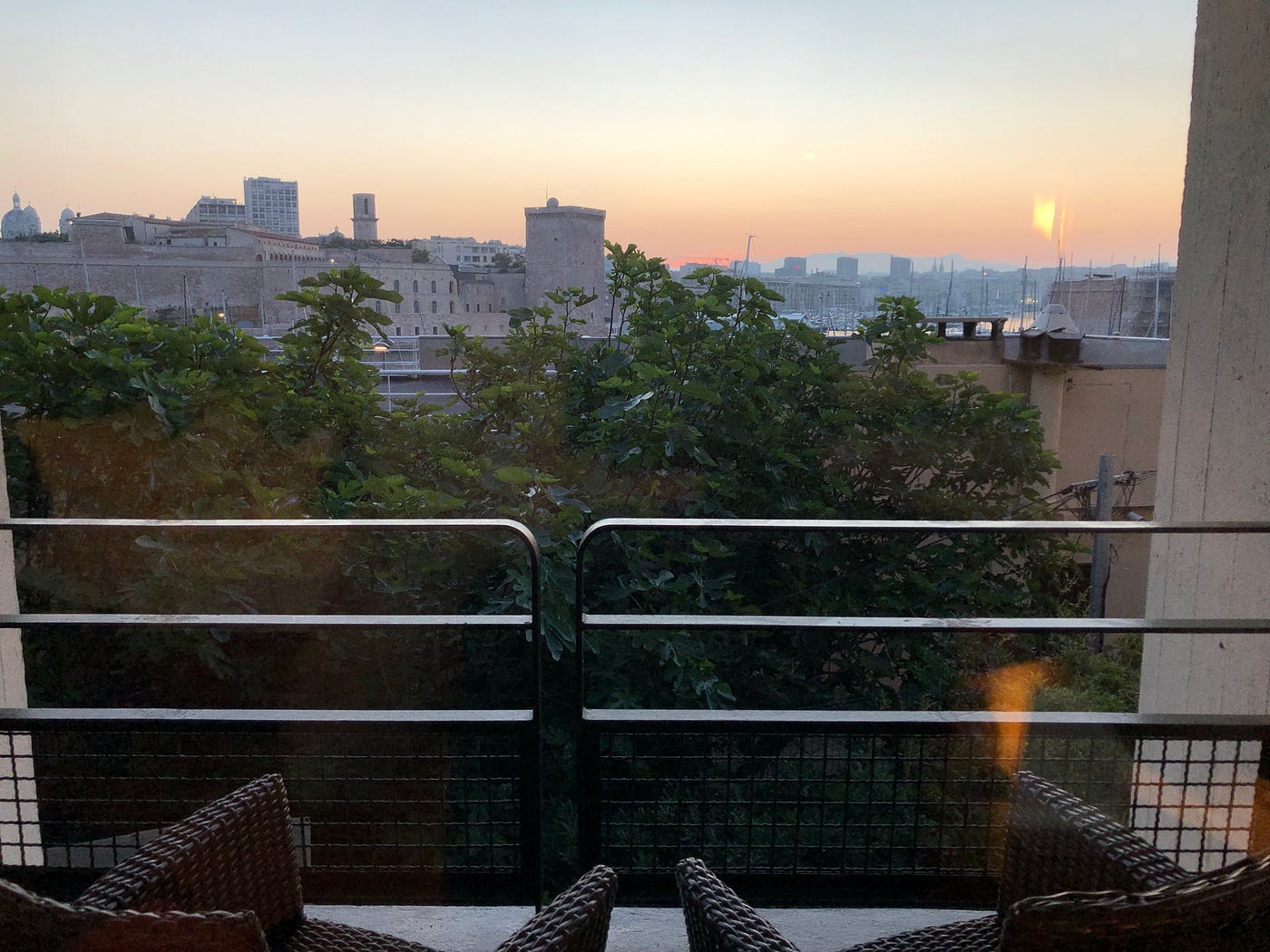
I woke up the next morning at 7am again. Once again, I was the first to head home the previous evening, already feeling the effects of film shoot exhaustion. I had no idea — and still have no idea — how my colleagues managed to party til 5am that morning, just like they had done the previous night. I know that the creative industries subscribe to the ‘Work hard, play hard’ mantra, but two hours’ sleep a night for five consecutive nights is hardly sustainable.

We arrived at yet another well-to-do suburb for our final film shoot.
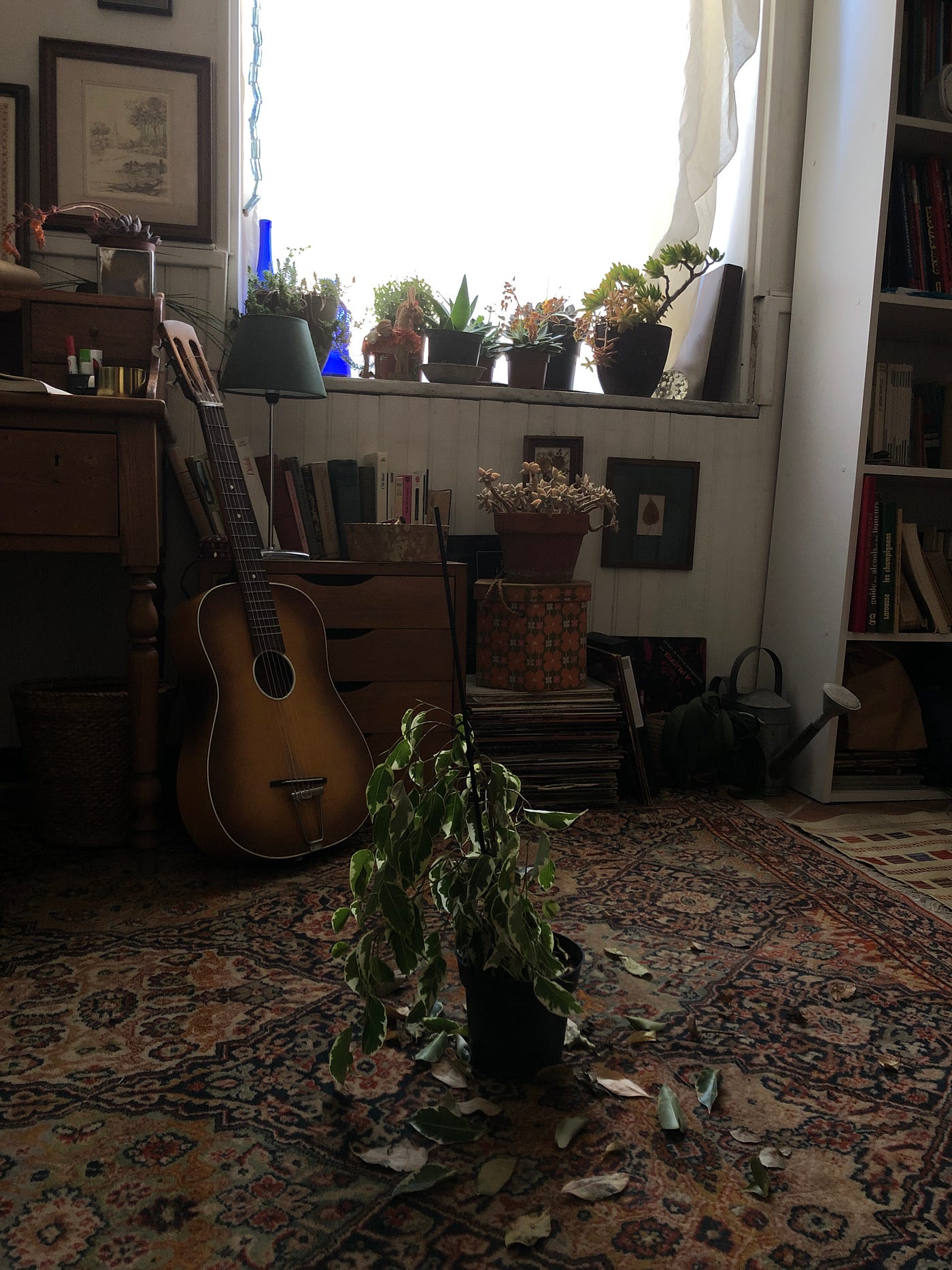
We were going to shoot in a couple of houses on the same street for three separate films.
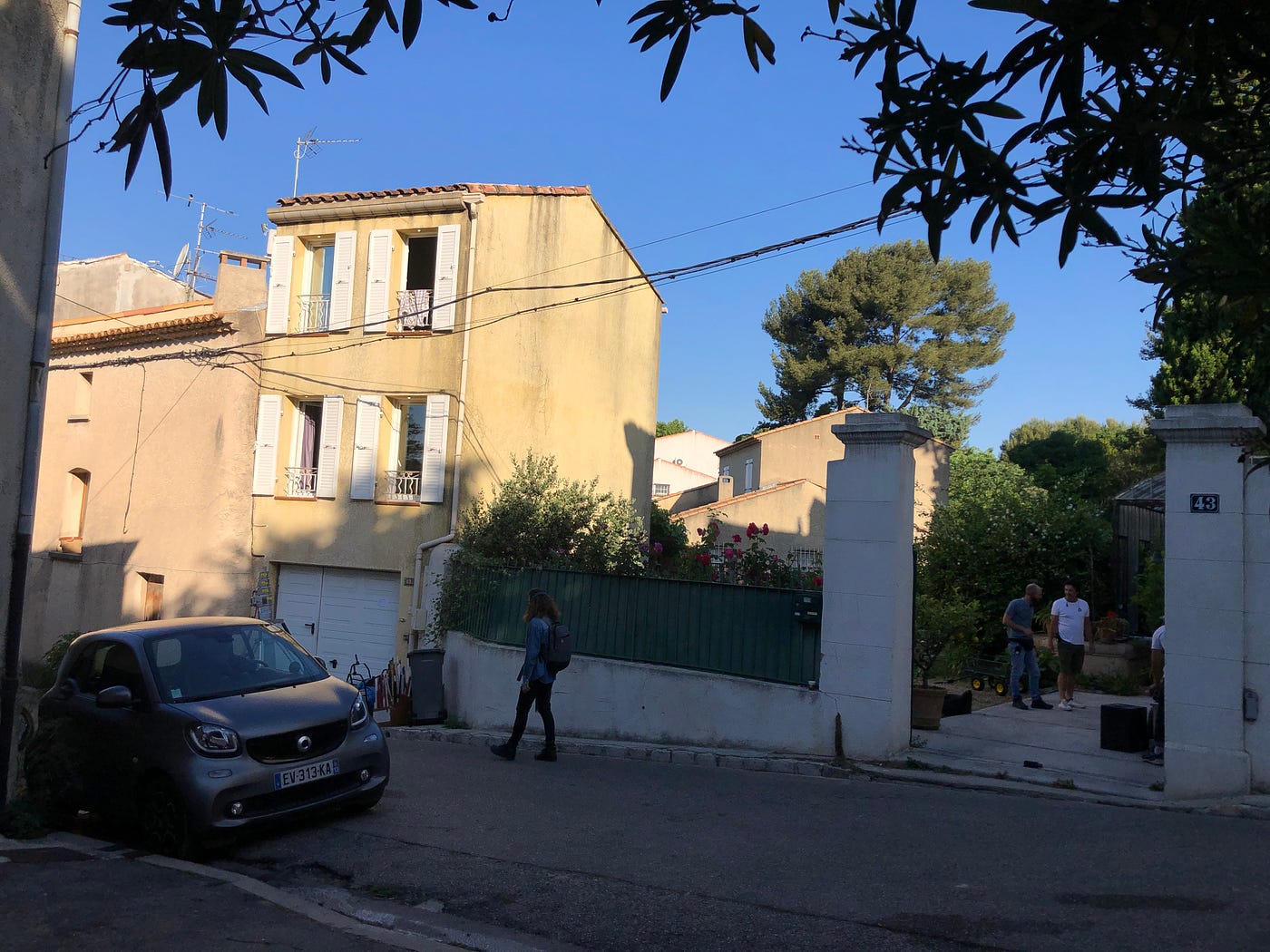
The crew prepared a kitchen for a scene in which a French man tries to prepare a meal for his Northern African family-in-law.
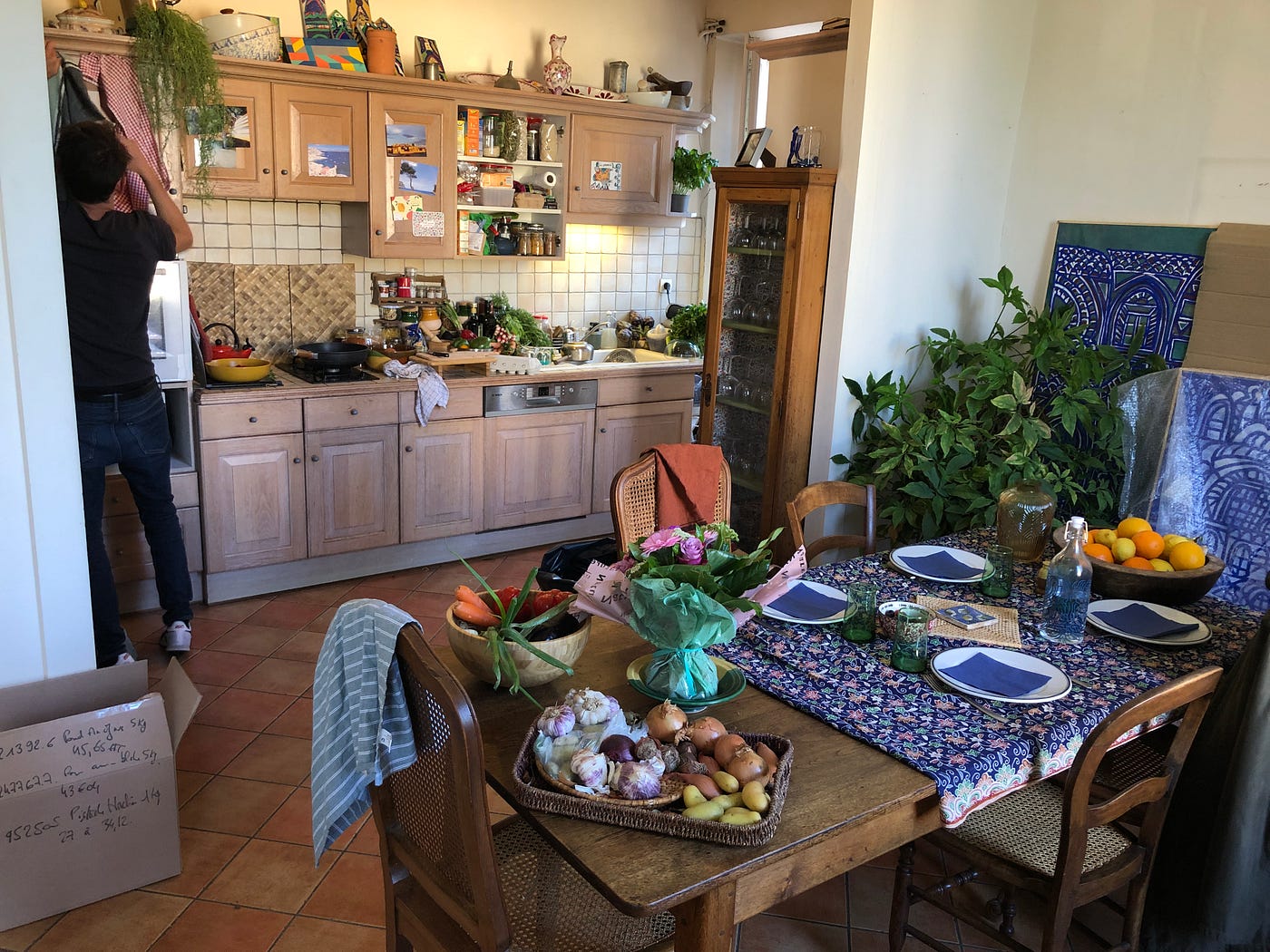
The house looked like a mansion, with multiple rooms and a greenhouse.
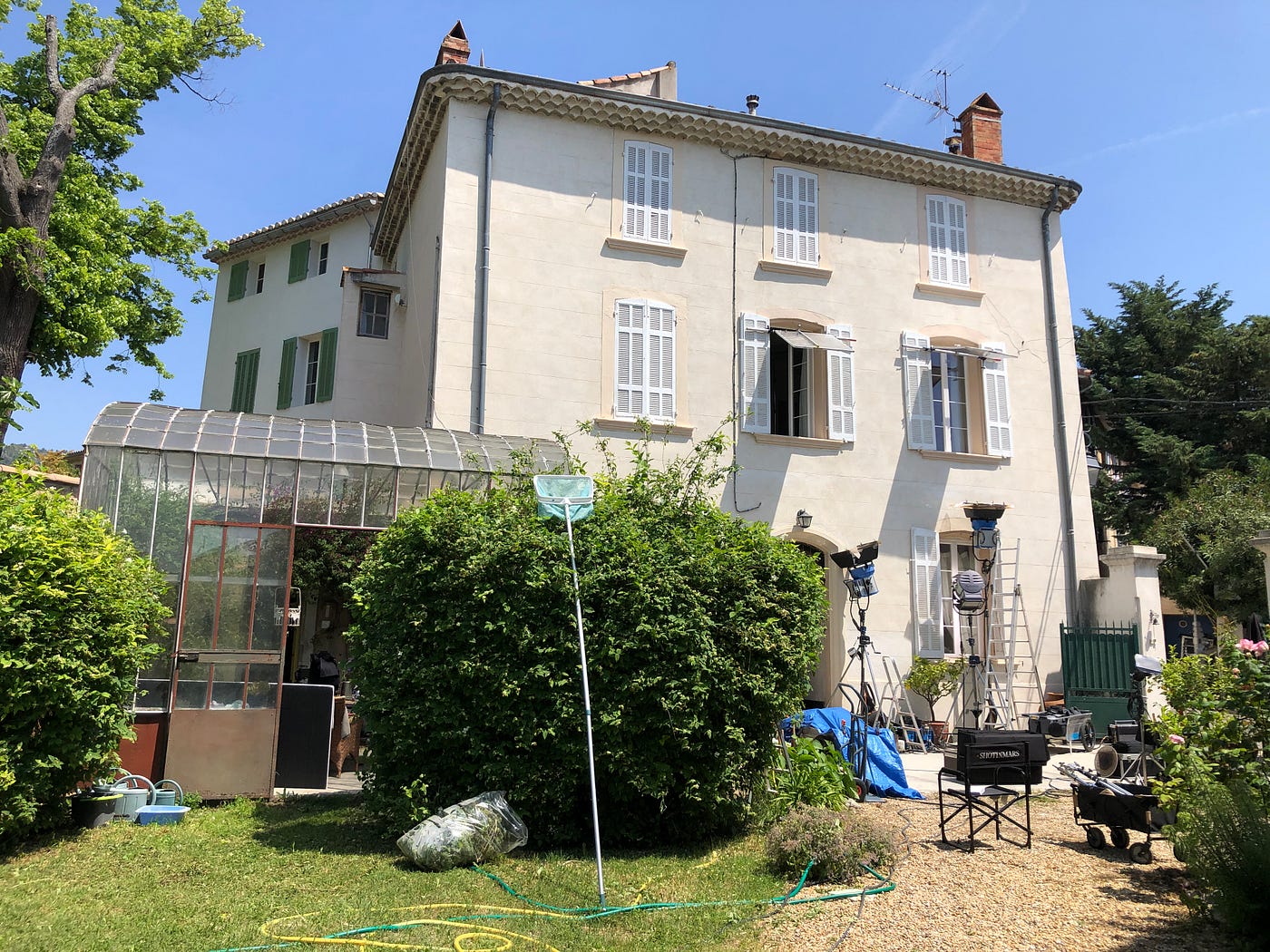
It was the final day of shoot and people were growing tired.
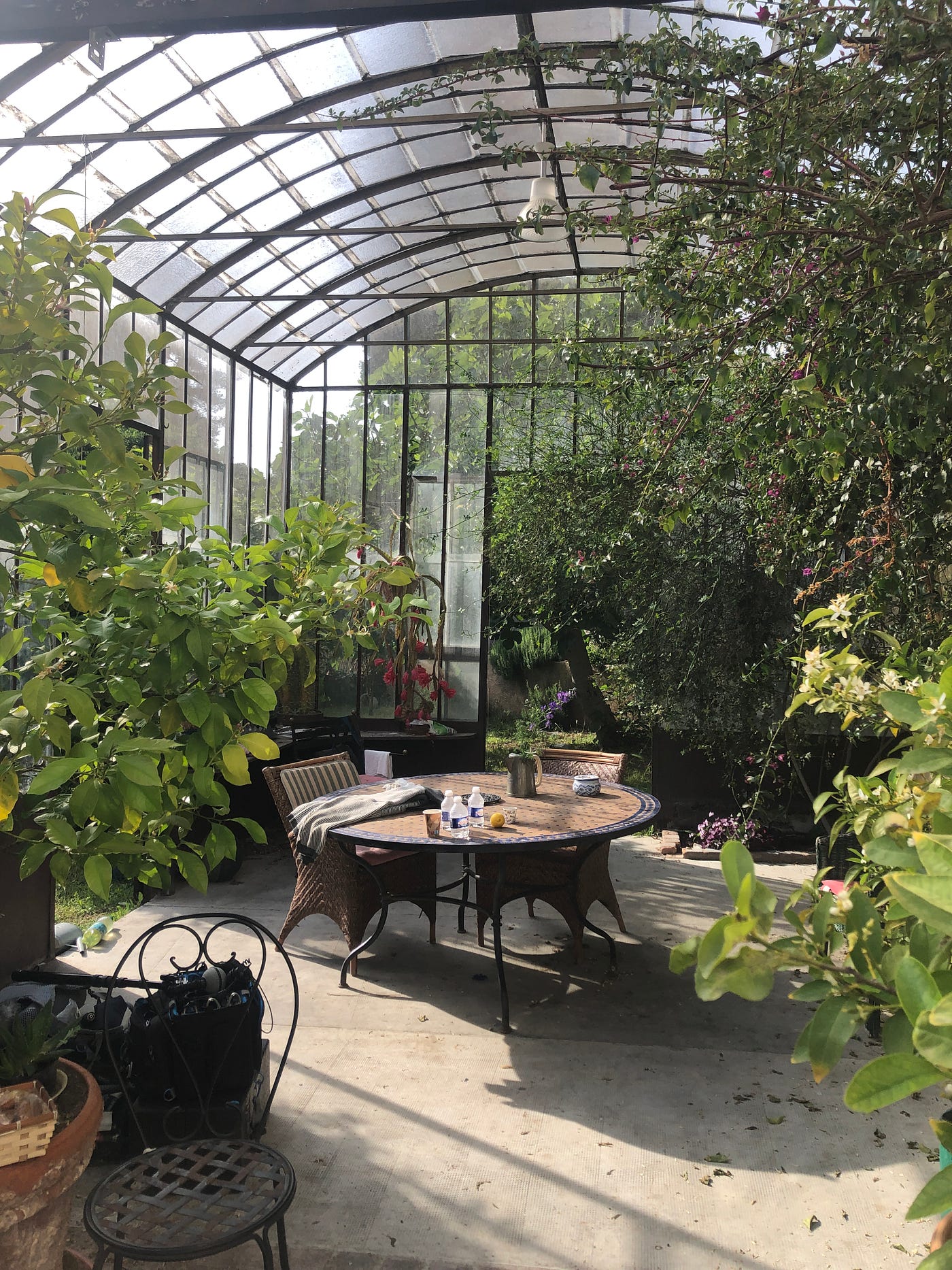
Once the shoot finally wrapped up for the day, there was a huge round of applause. All seven films had finally been shot. All that remained now was post-production — a mountain of work yet to be scaled.
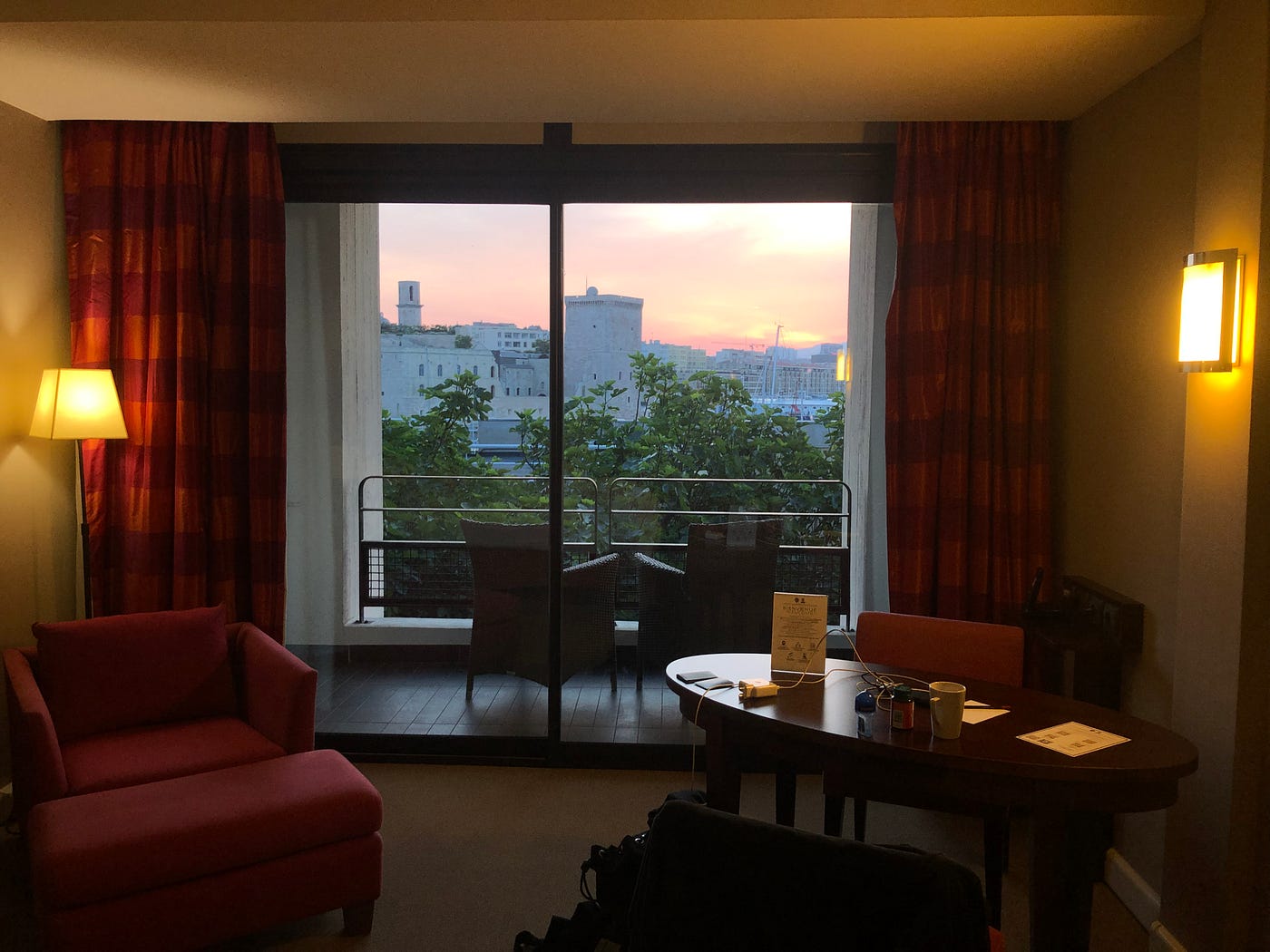
After yet another evening of celebrations — this time at a bar along the waterfront — I got up the next morning at 7.
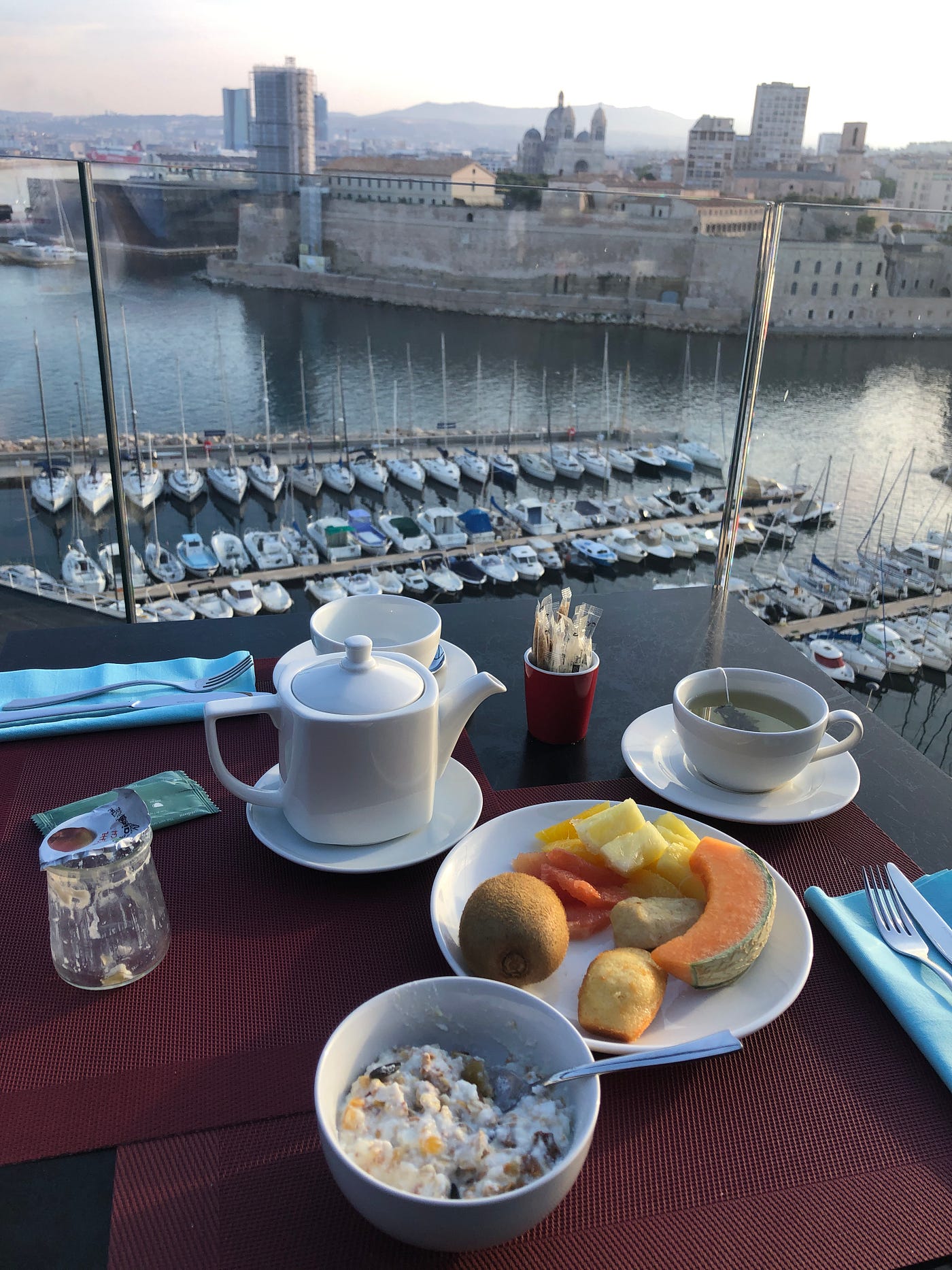
The view from the rooftop was beautiful. And for once, I could eat my breakfast in peace and quiet.
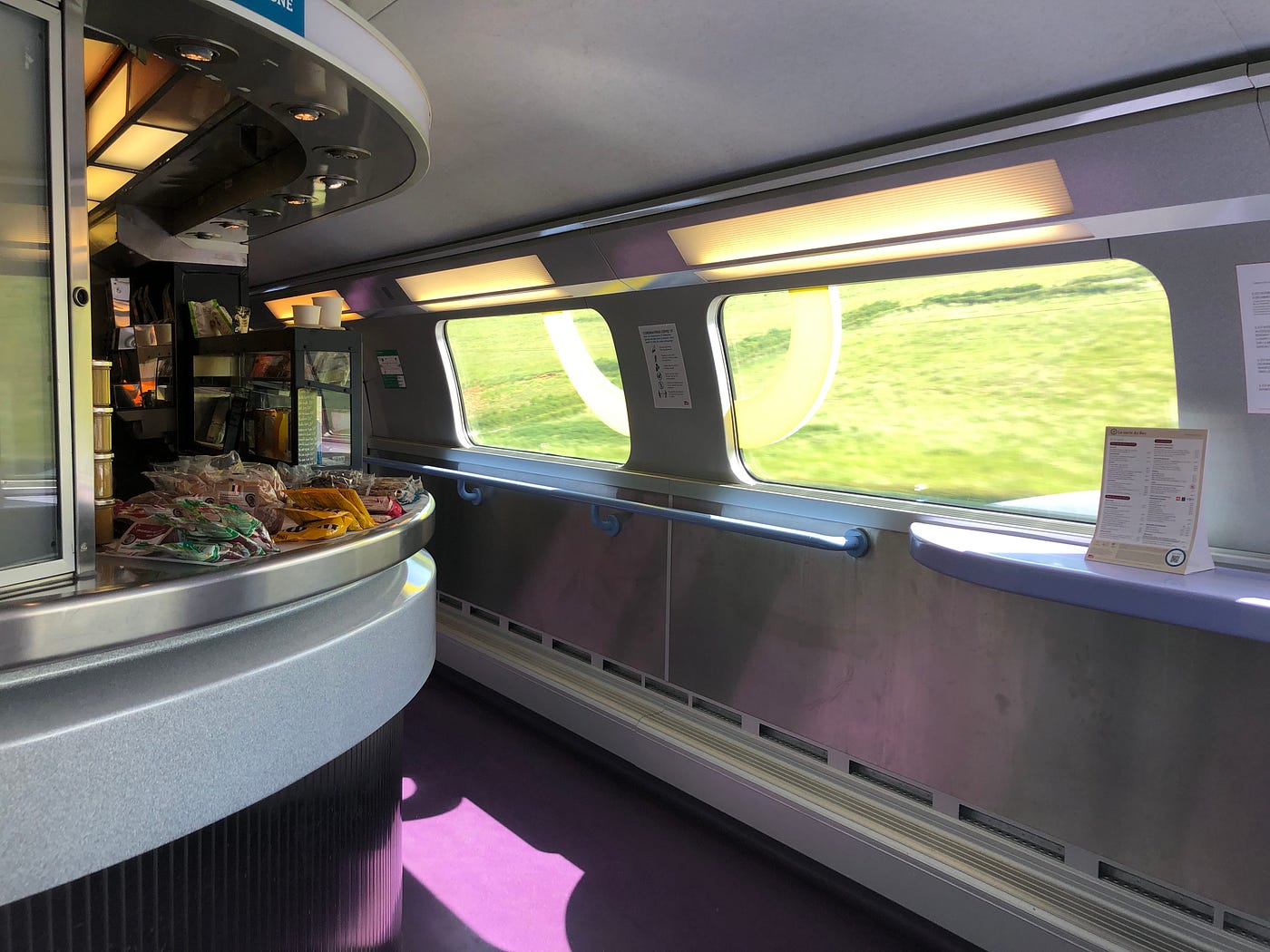
The train journey back to Paris was tiring, but I can’t begin to imagine how rough my hungover colleagues must have felt.
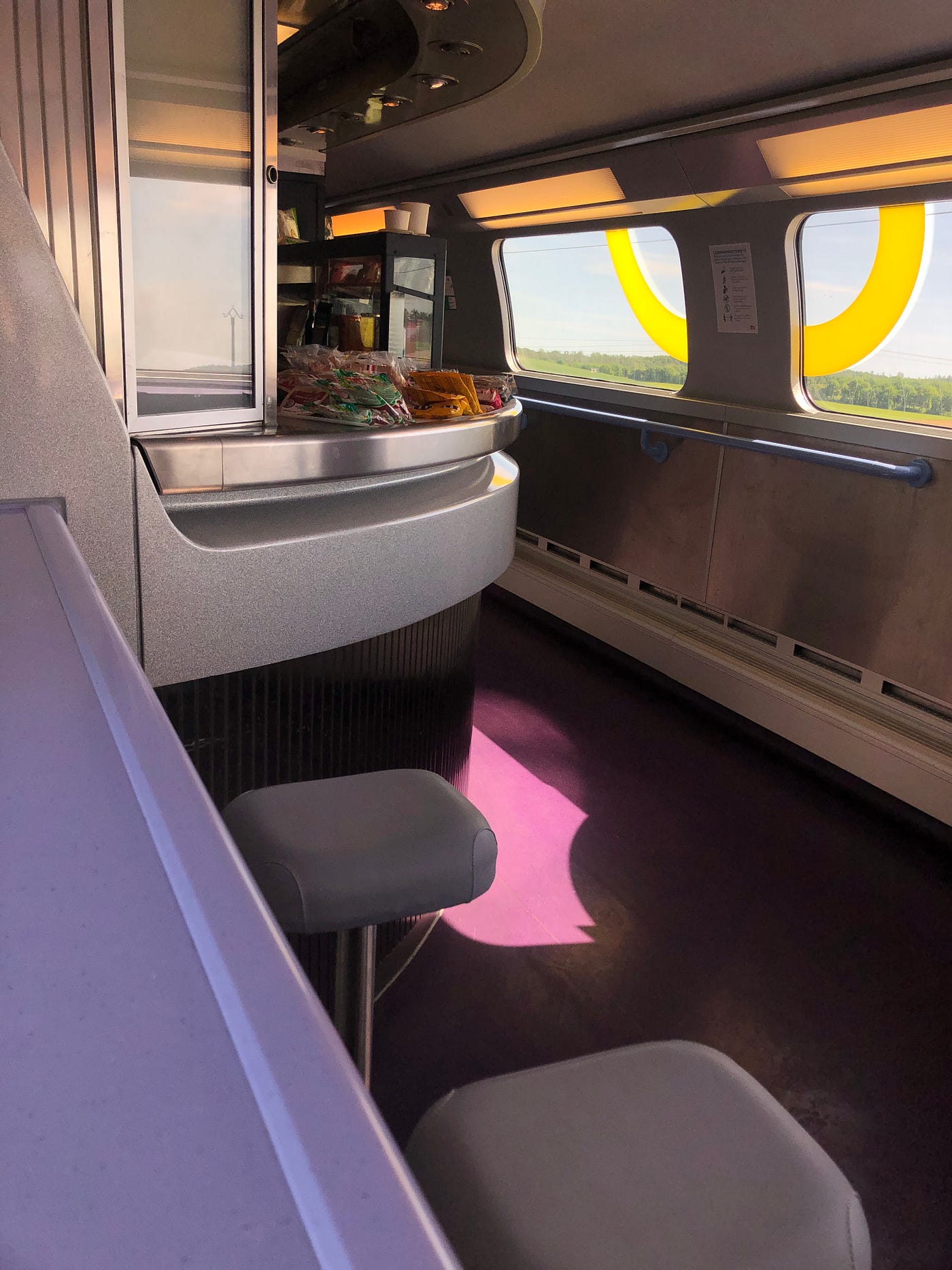
Given the fact that I was in Marseille for work, I felt I didn’t really have time to explore the city myself. As a result, what I saw of Marseille — from the five-star hotel to the bourgeois neighbourhoods to the trendy bars along the waterfront — was a very Lost in Translation version of the city. A Sofia Coppola vision that few locals would share.
Still, it was an incredible experience, and I’m glad to have to have had the chance to return to a city I hadn’t seen in over a decade.
But if there’s one thing I learnt about myself during my time there, it is this: luxury is wasted on me.









